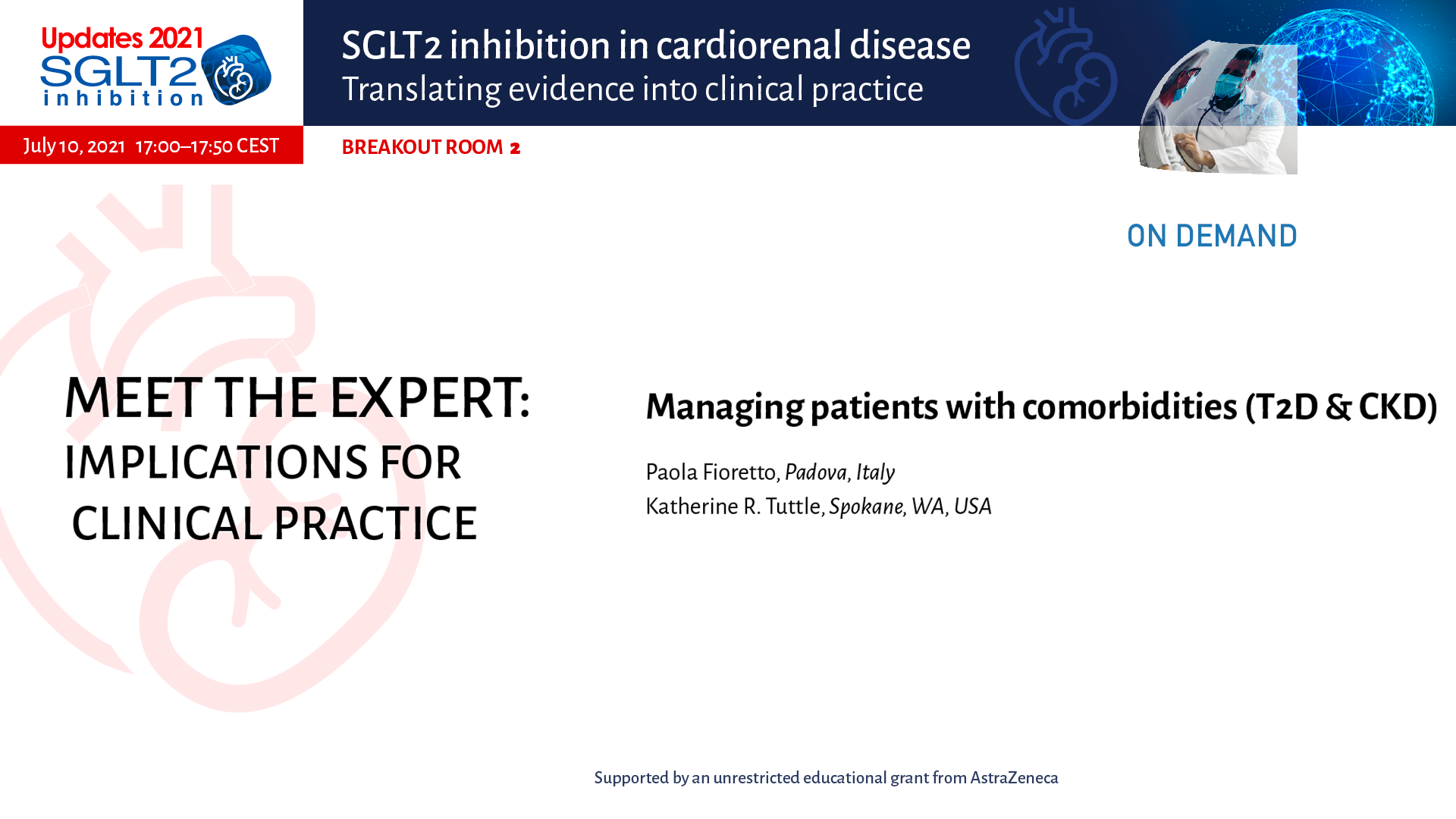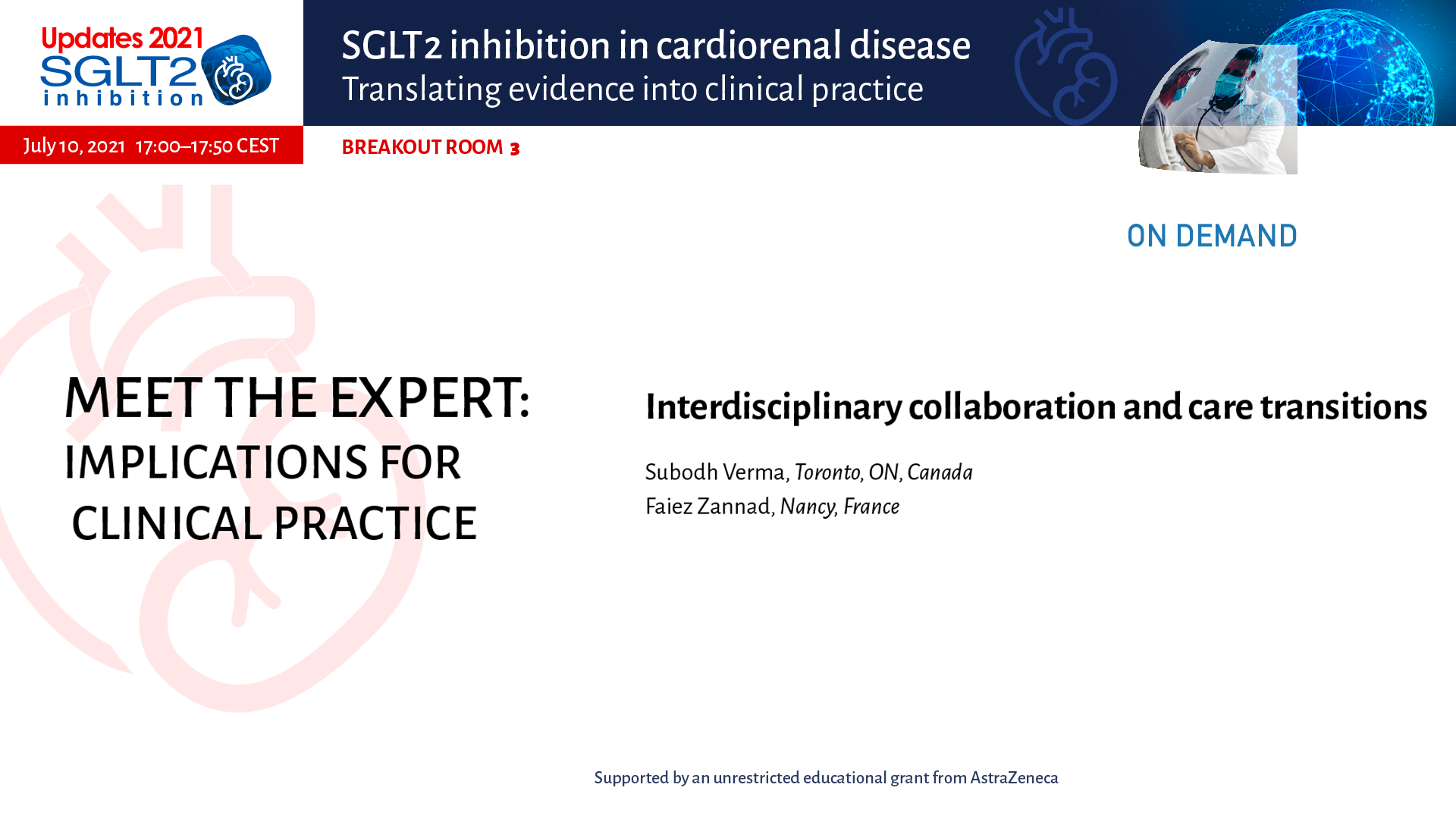SGLT2 Inhibition Updates 2021 - SGLT2 Inhibition in Cardiorenal Disease
Published: 20 July 2021
-
Views:
 25033
25033
-
Likes:
 7
7
-
Views:
 25033
25033
-
Likes:
 7
7
-
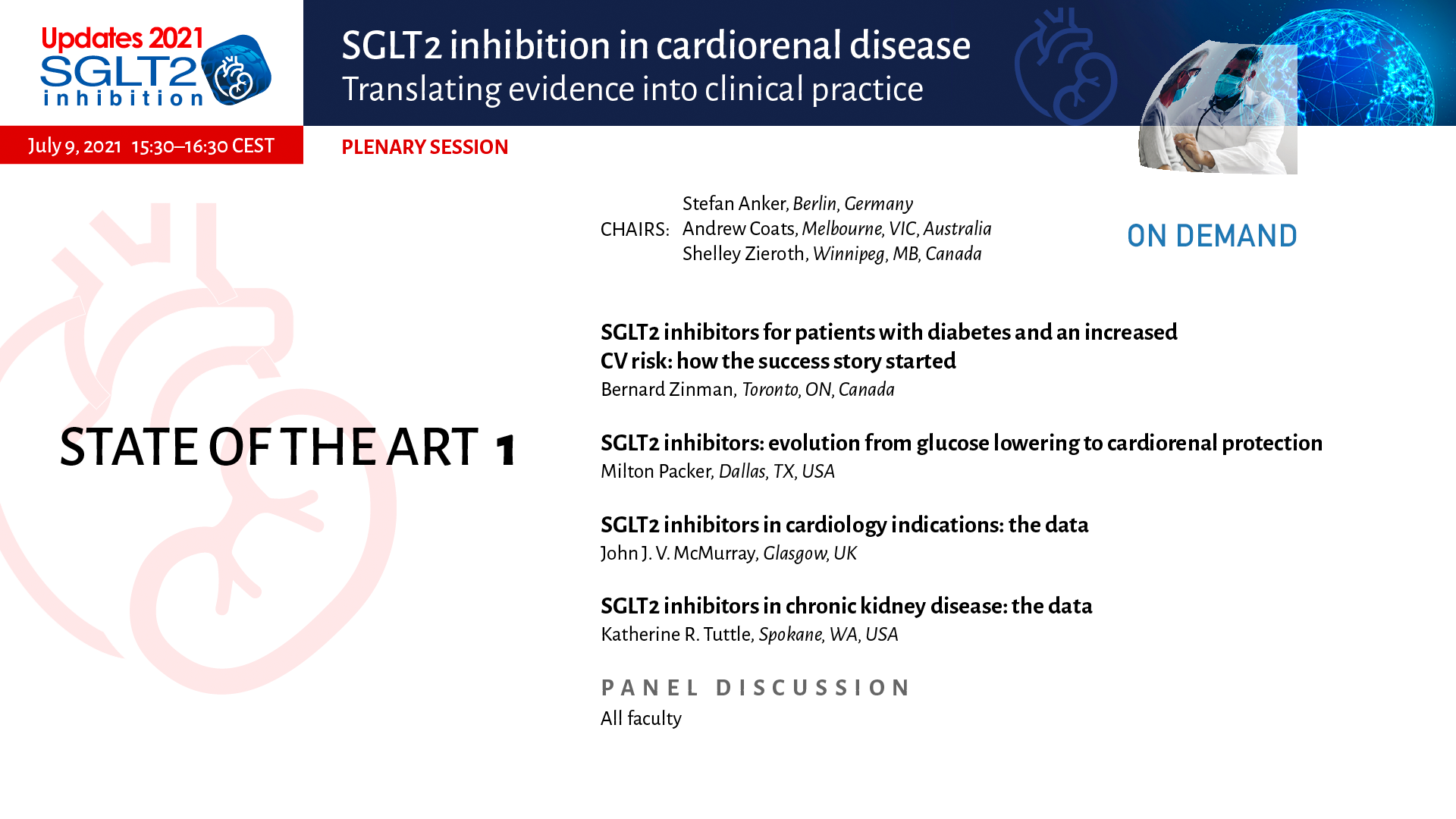 Up Next
Up Next -
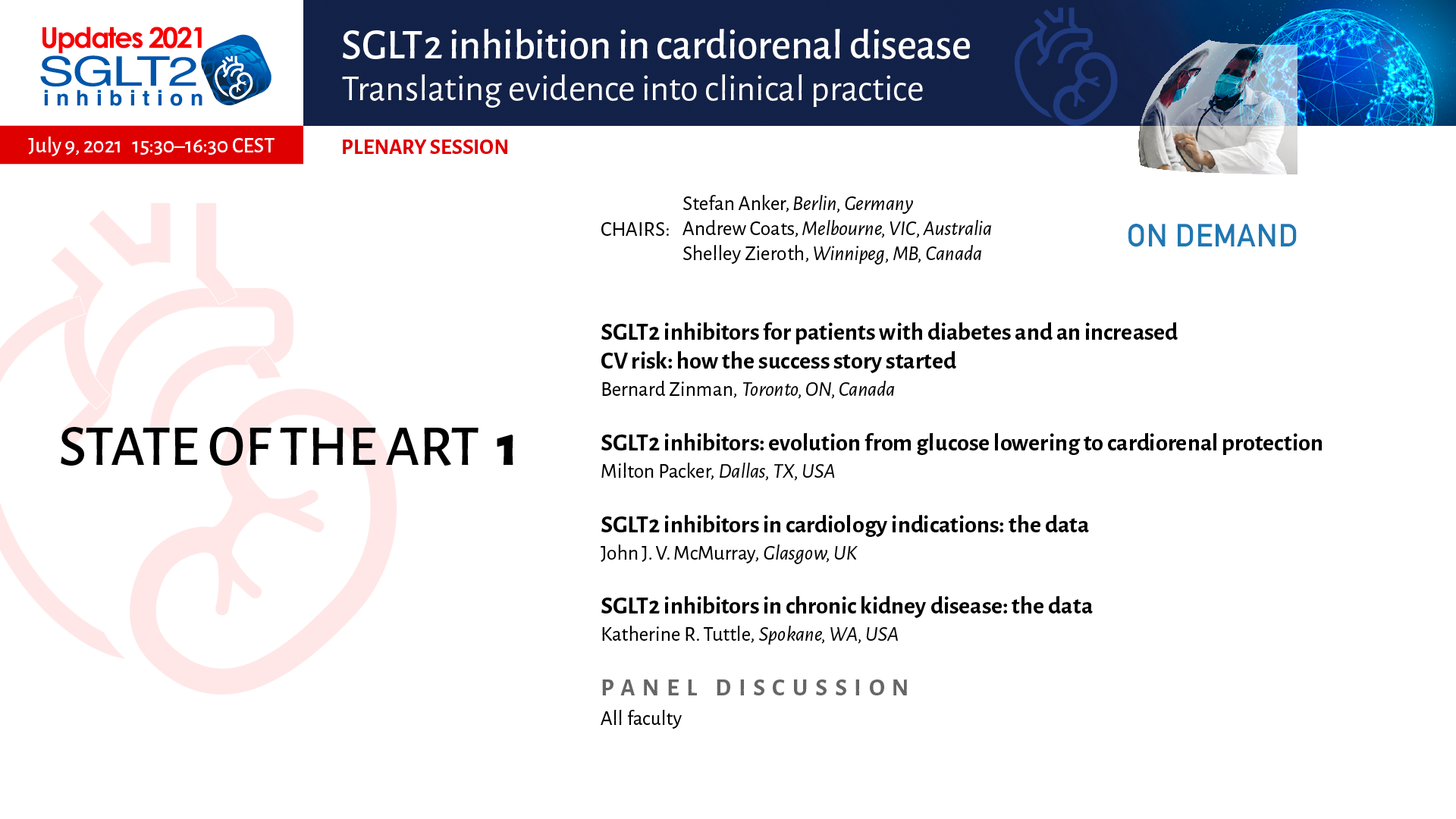 12m 18sPart 1 | Session 4 SGLT2 Inhibitors in Cardiology Indications: The Data
12m 18sPart 1 | Session 4 SGLT2 Inhibitors in Cardiology Indications: The Data -
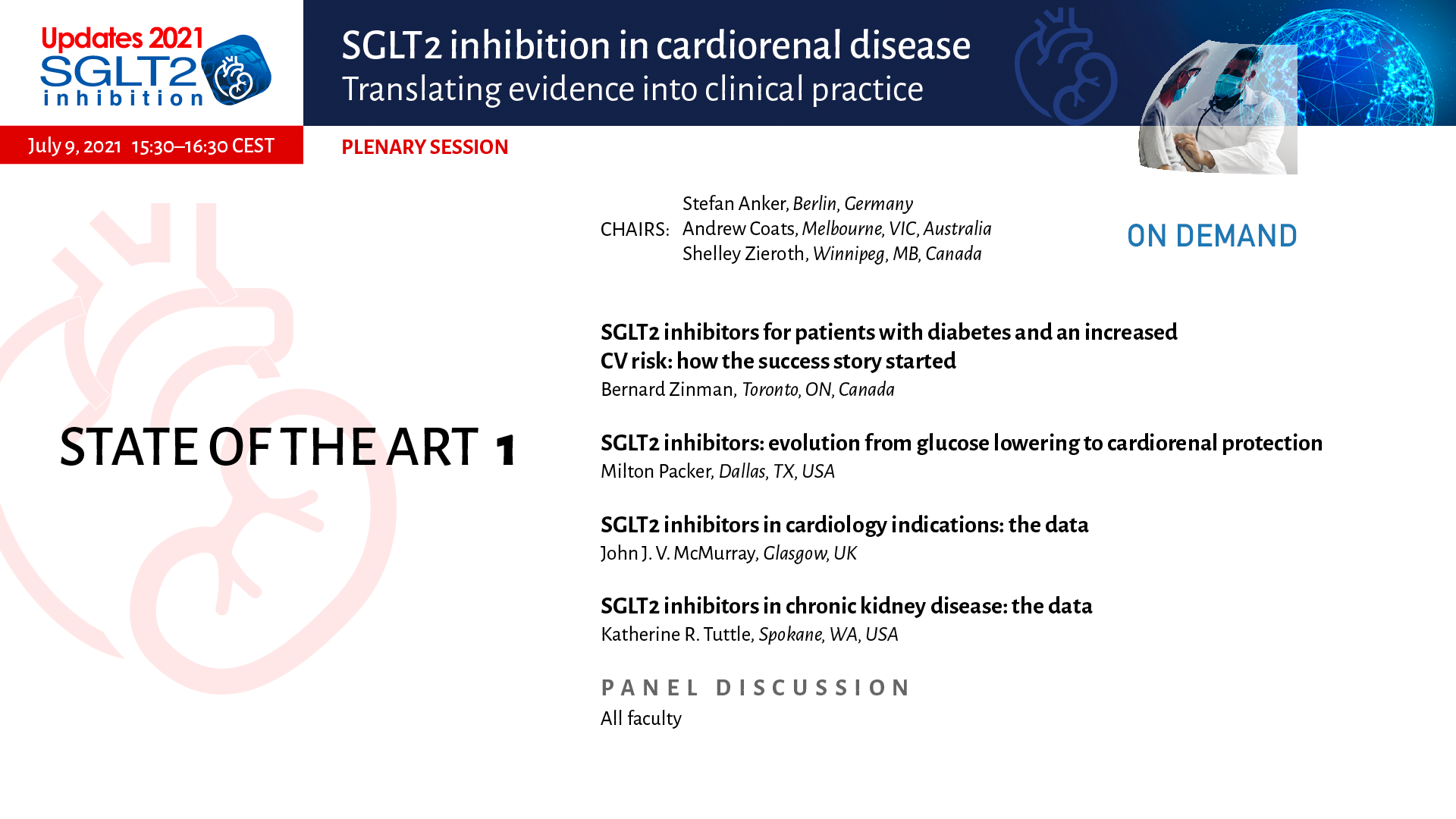 9m 38sPart 1 | Session 5 SGLT2 Inhibitors in Chronic Kidney Disease: The Data
9m 38sPart 1 | Session 5 SGLT2 Inhibitors in Chronic Kidney Disease: The Data -
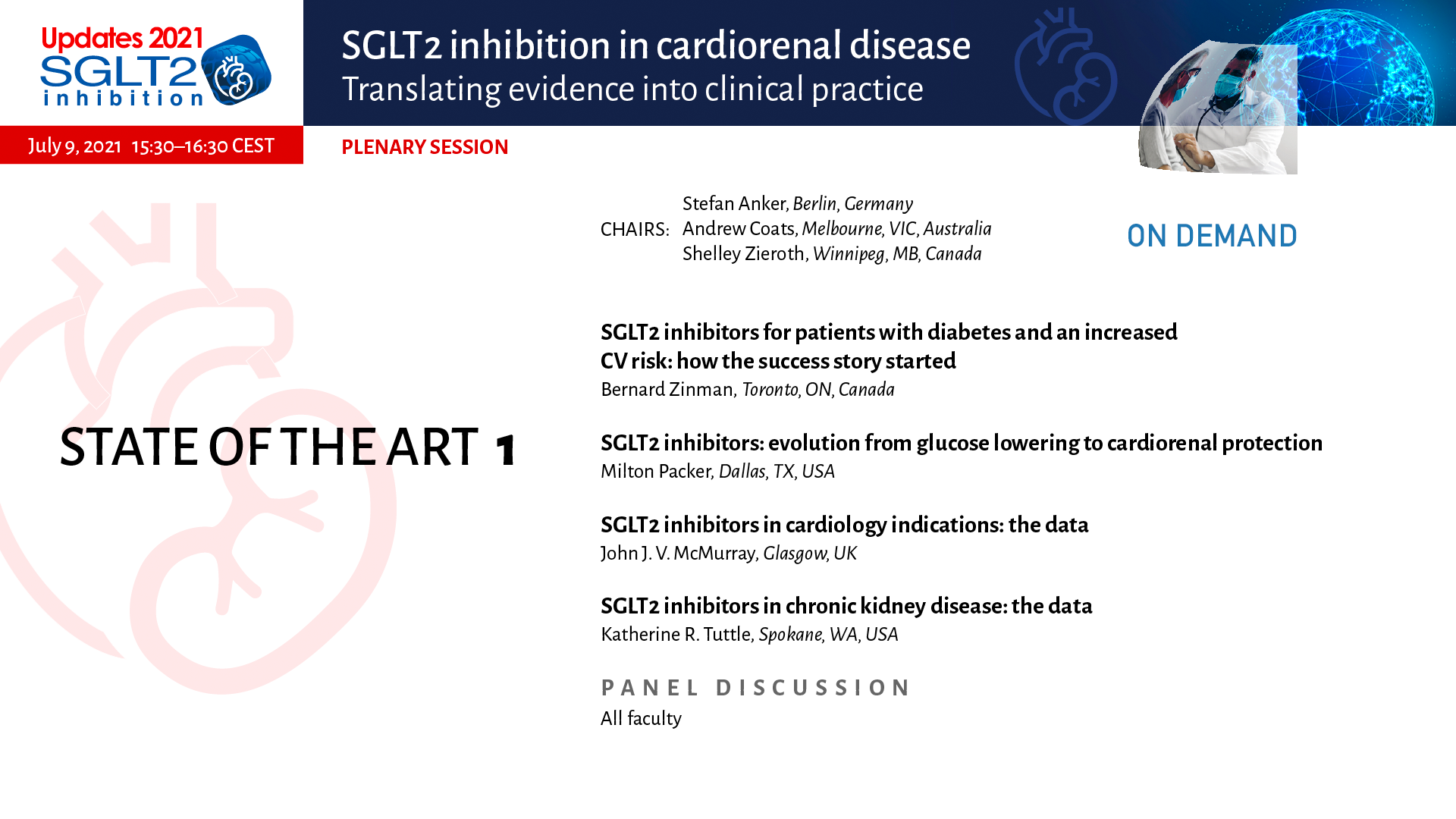 14m 38sPart 1 | Session 6 Panel Discussion
14m 38sPart 1 | Session 6 Panel Discussion
-
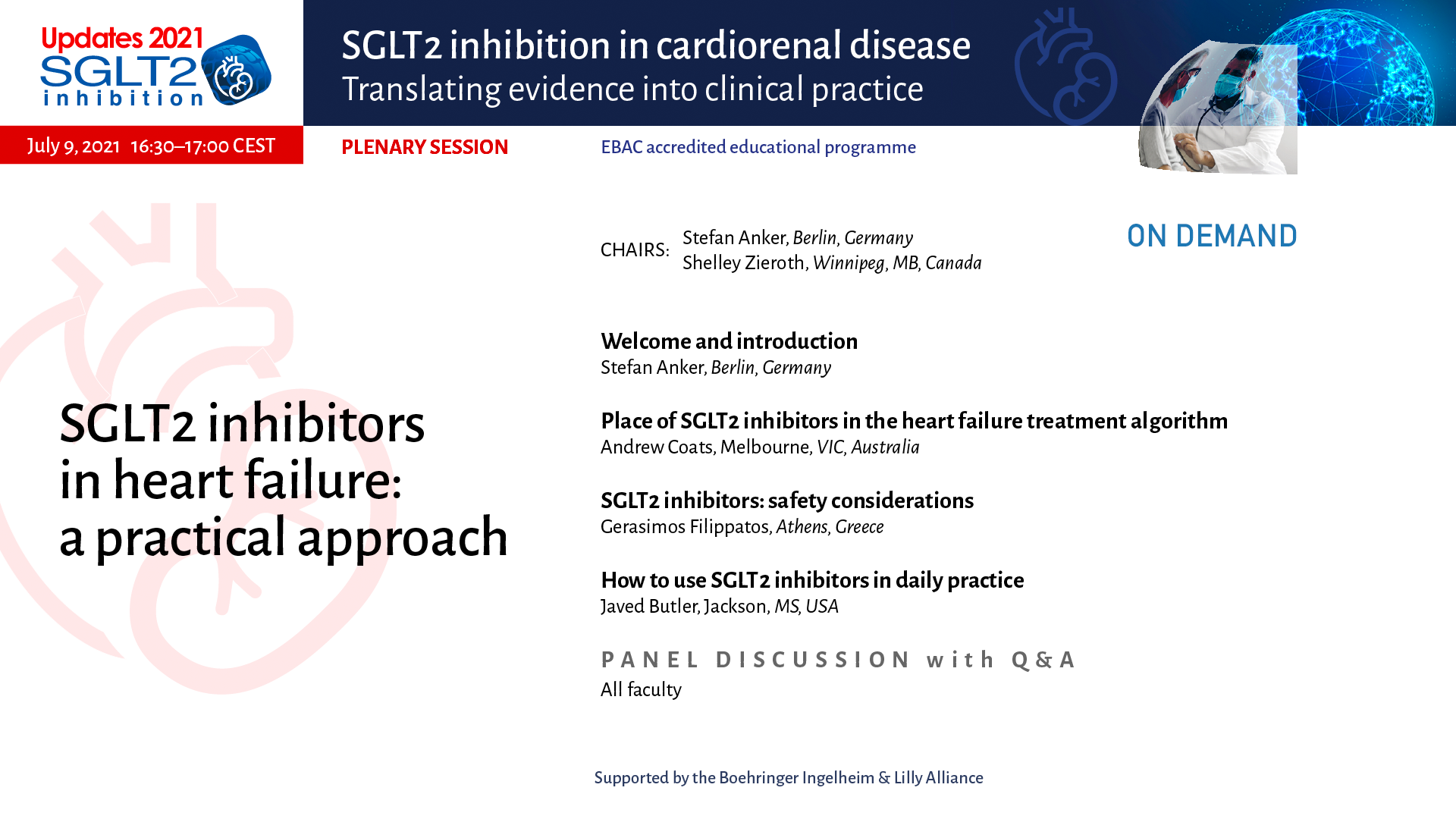 9m 39sPart 2 | Session 1 Place of SGLT2 Inhibitors in the Heart Failure Treatment Algorithm
9m 39sPart 2 | Session 1 Place of SGLT2 Inhibitors in the Heart Failure Treatment Algorithm -
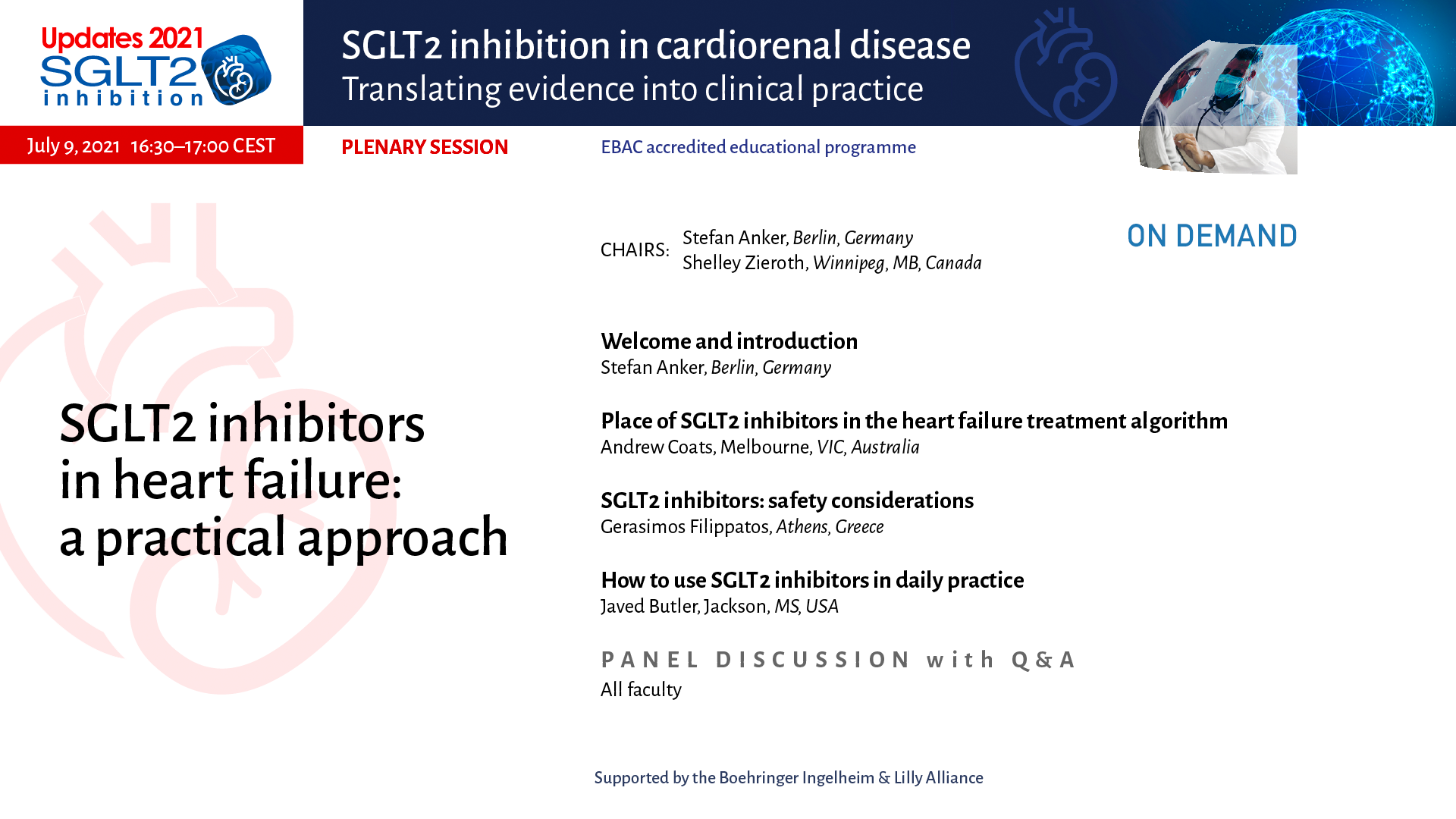 8m 1sPart 2 | Session 2 SGLT2 Inhibitors: Safety Considerations
8m 1sPart 2 | Session 2 SGLT2 Inhibitors: Safety Considerations -
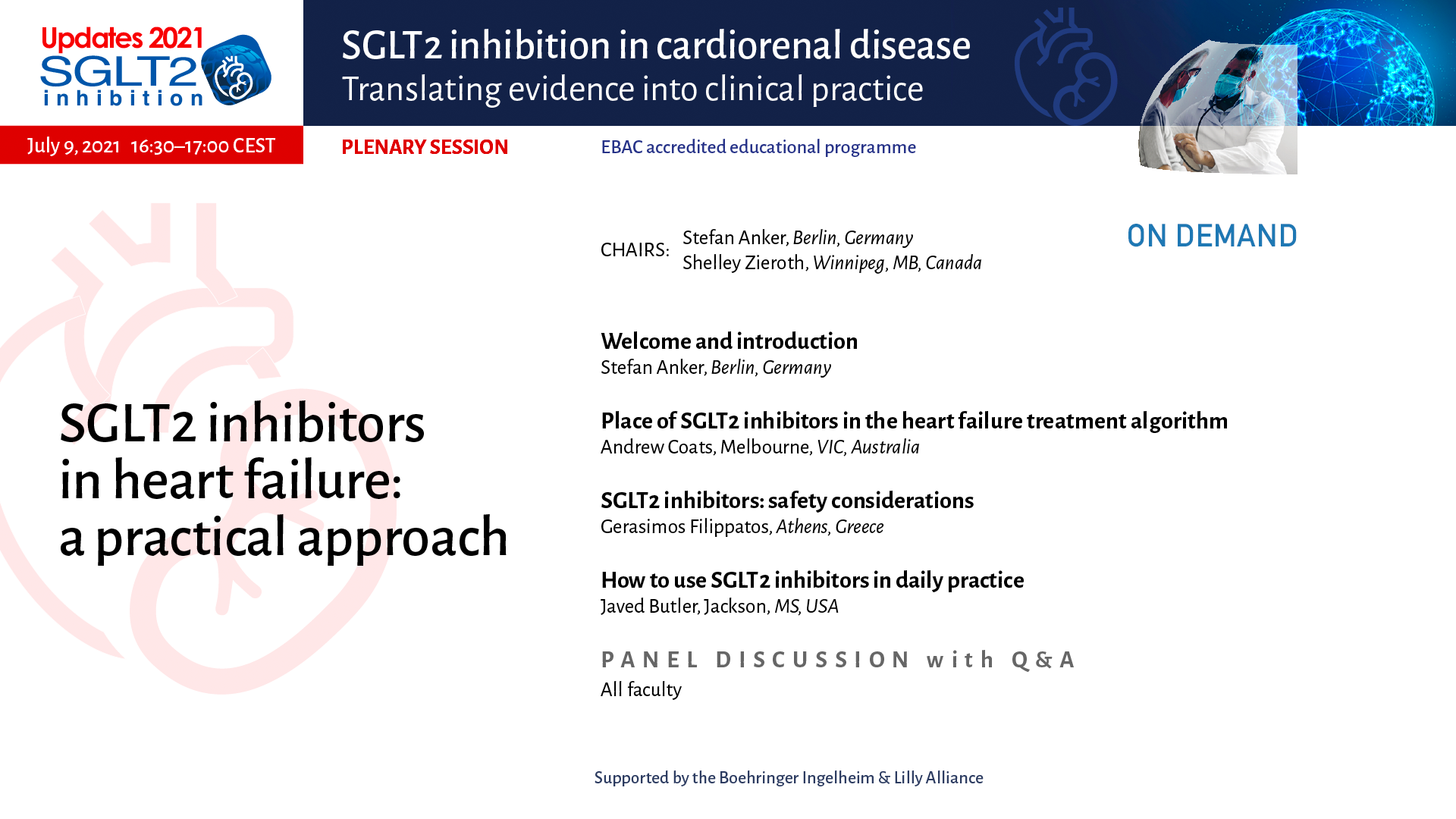 7m 39sPart 2 | Session 3 How to Use SGLT2 Inhibitors in Daily Practice
7m 39sPart 2 | Session 3 How to Use SGLT2 Inhibitors in Daily Practice -
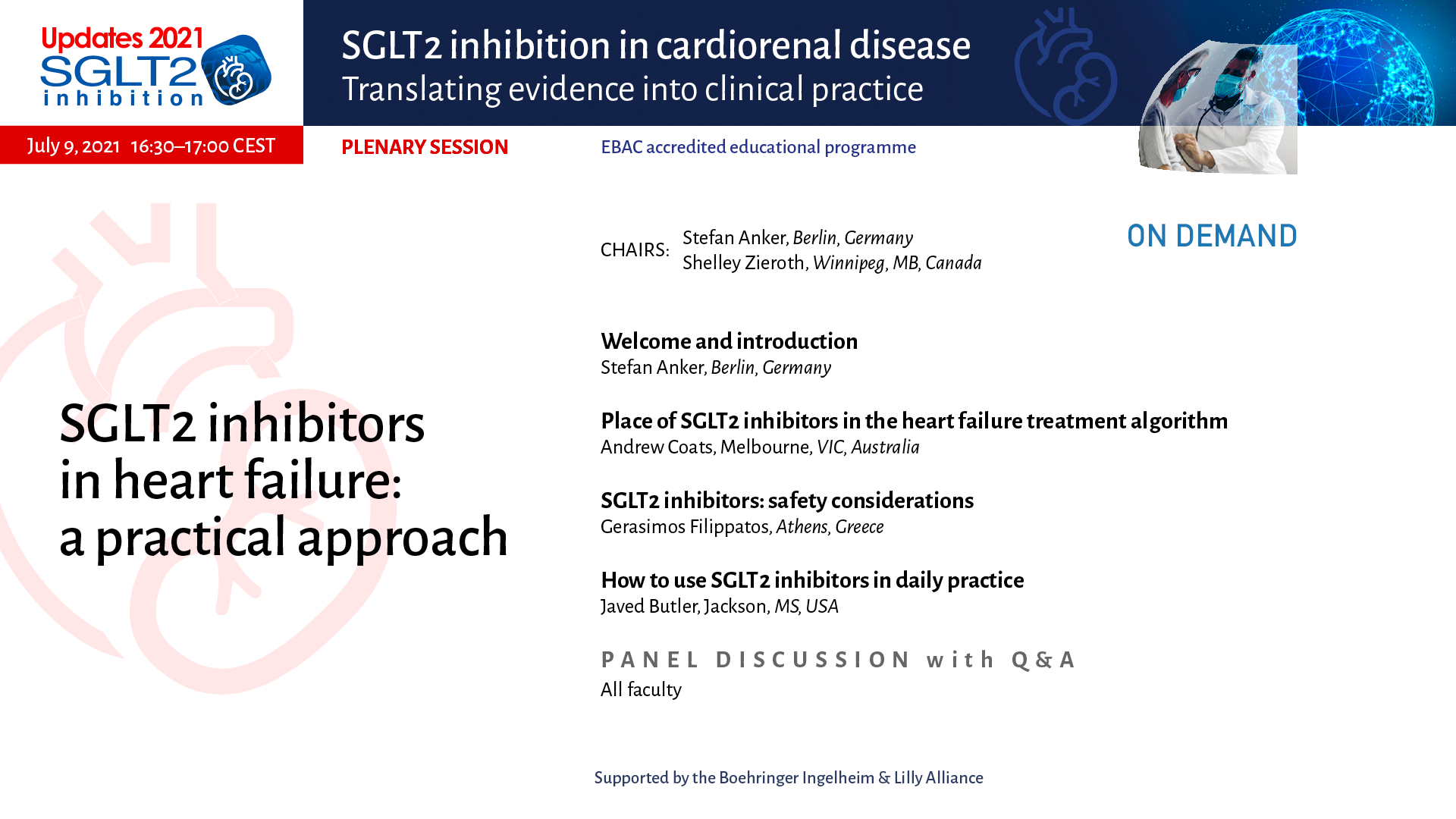 6m 58sPart 2 | Session 4 Panel Discussion
6m 58sPart 2 | Session 4 Panel Discussion
-
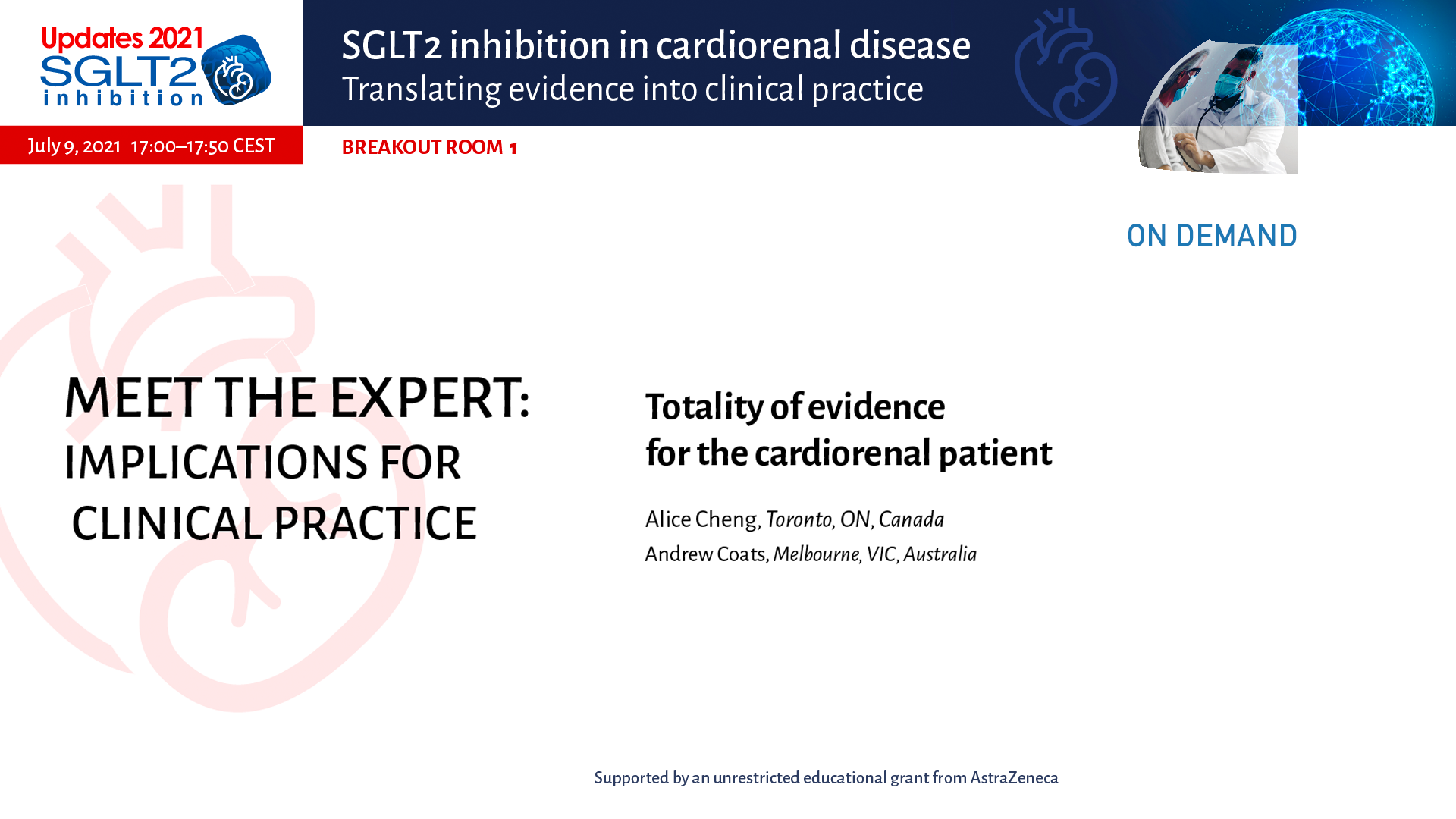 3m 56sPart 3 | Session 1 Totality of Evidence for the Cardiorenal Patient
3m 56sPart 3 | Session 1 Totality of Evidence for the Cardiorenal Patient -
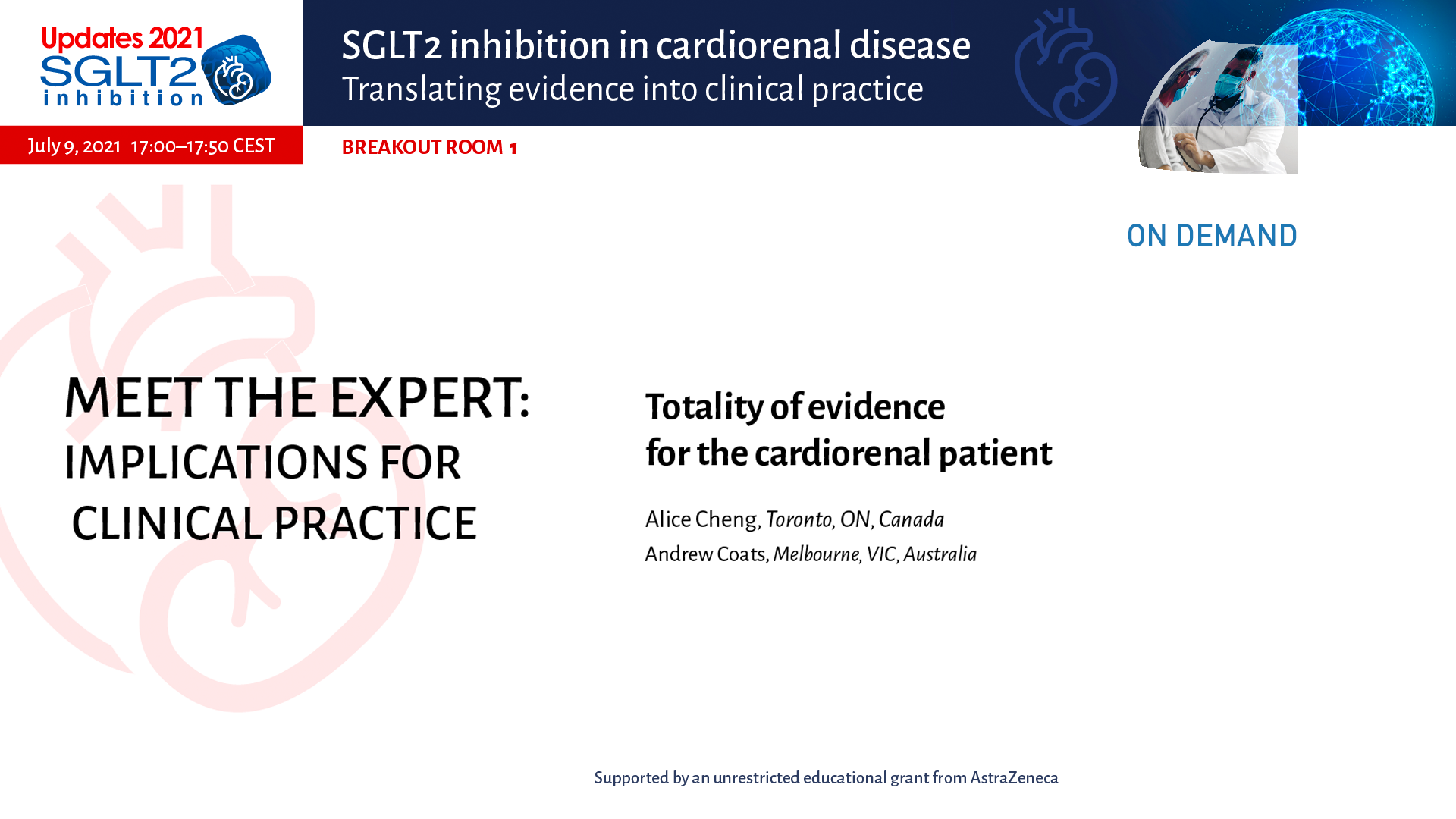 50m 42sPart 3 | Session 2 Discussion
50m 42sPart 3 | Session 2 Discussion
-
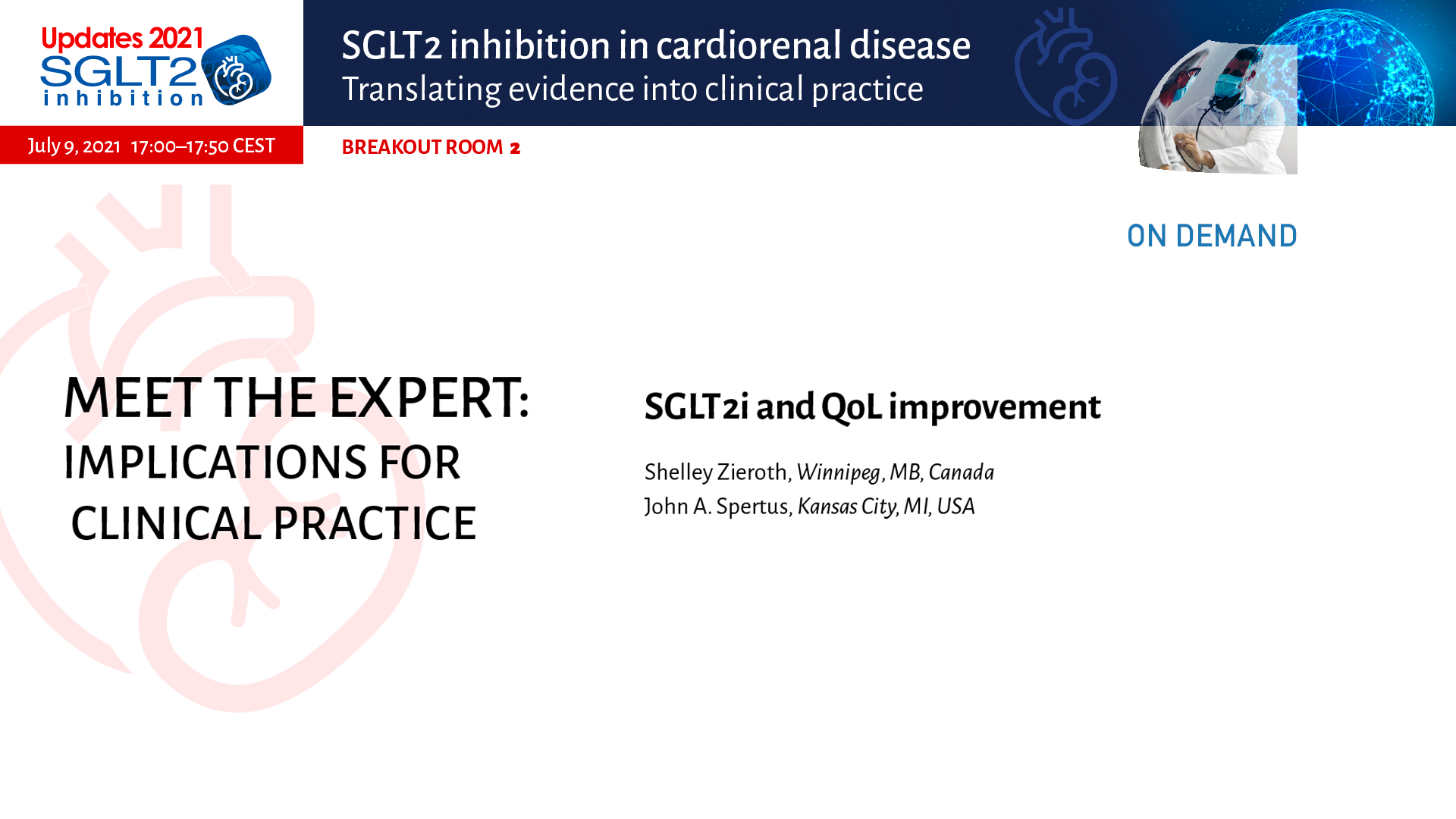 1m 55sPart 4 | Session 1 Welcome and Introduction
1m 55sPart 4 | Session 1 Welcome and Introduction -
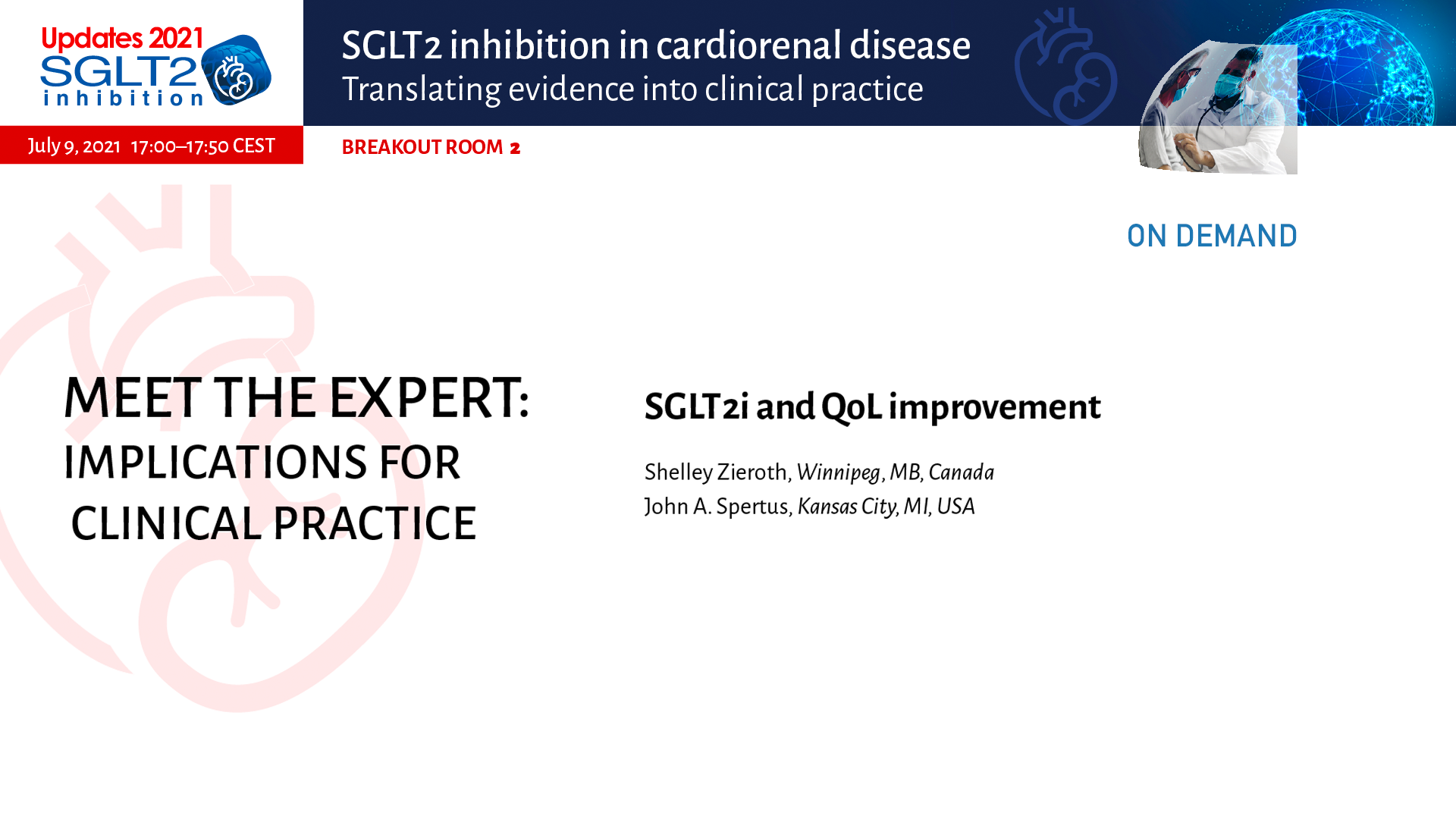 43mPart 4 | Session 2 KCCQ Score Overview and Discussion
43mPart 4 | Session 2 KCCQ Score Overview and Discussion
-
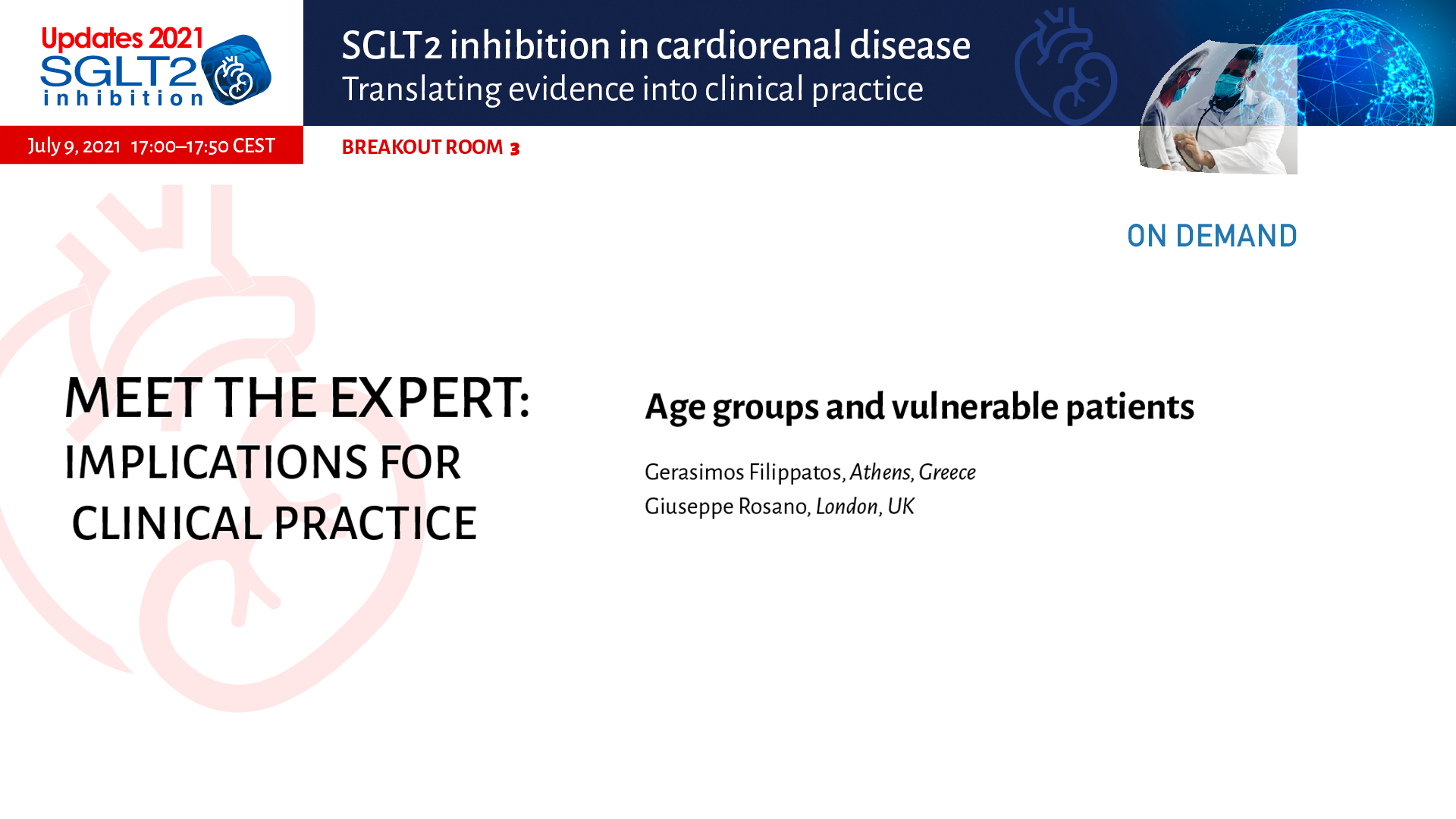 1m 11sPart 5 | Session 1 Welcome and Introduction
1m 11sPart 5 | Session 1 Welcome and Introduction -
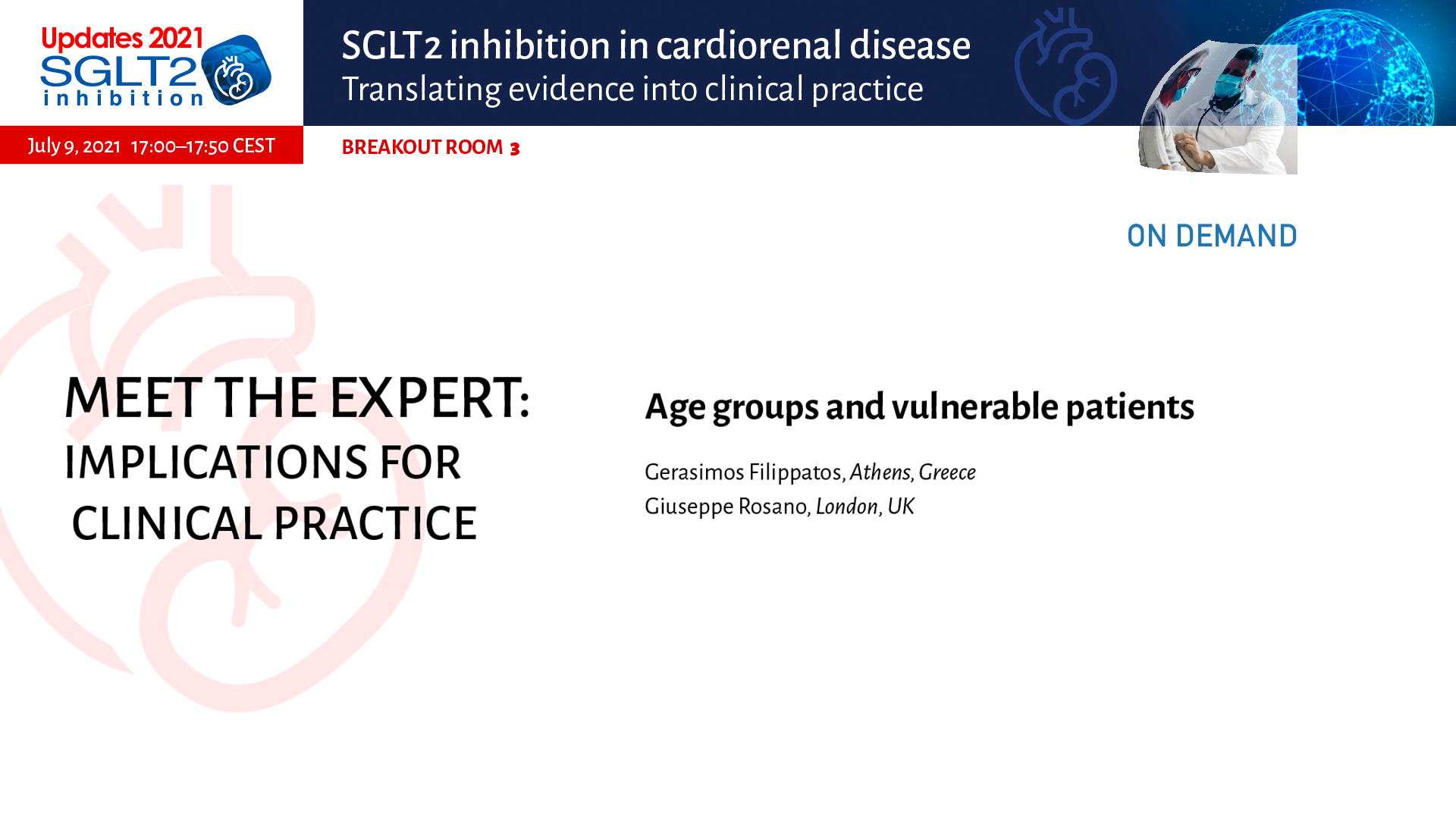 7m 5sPart 5 | Session 2 SGLT2i in the Elderly and Vulnerable Patients
7m 5sPart 5 | Session 2 SGLT2i in the Elderly and Vulnerable Patients -
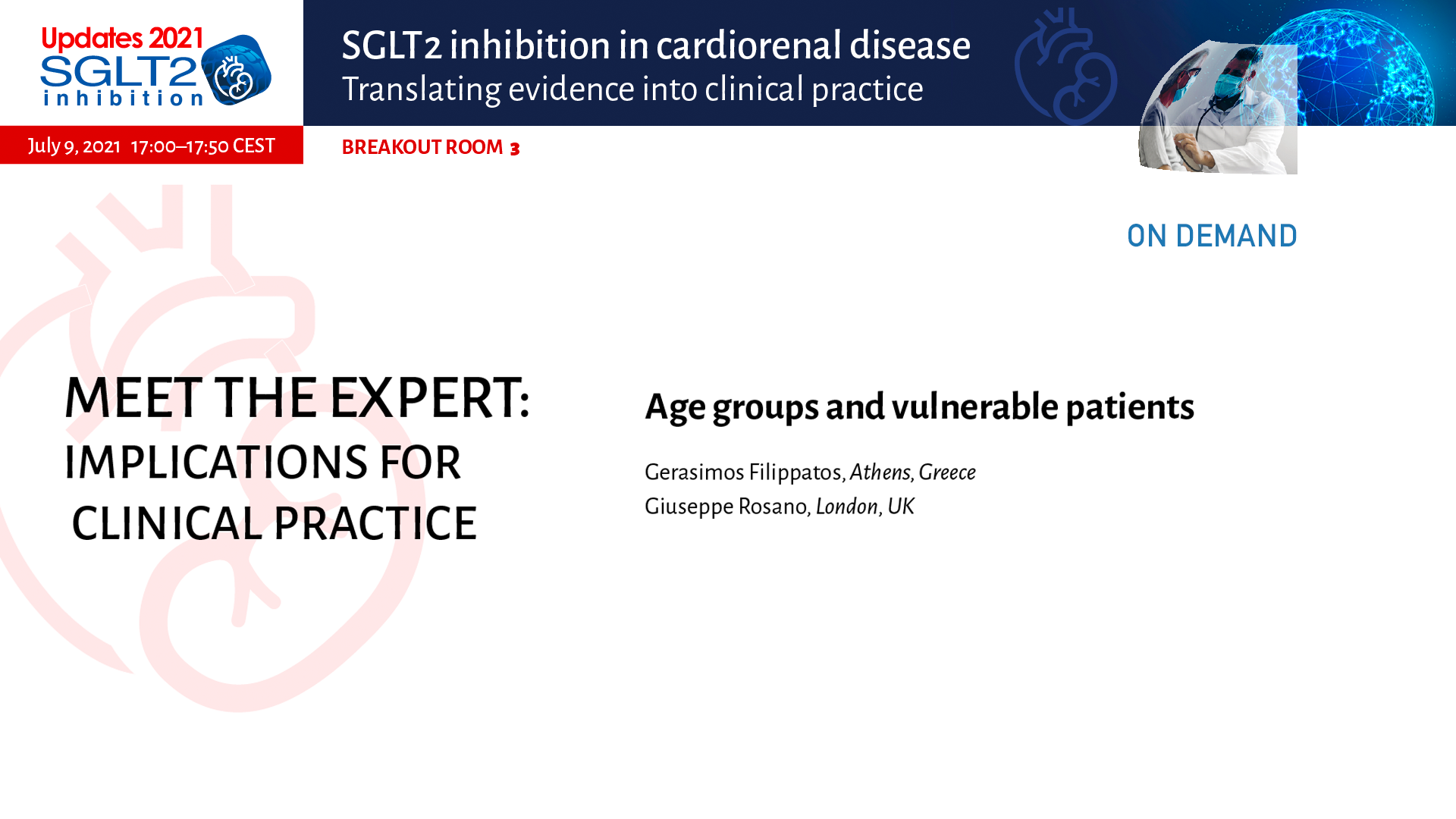 27m 15sPart 5 | Session 3 Discussion
27m 15sPart 5 | Session 3 Discussion
-
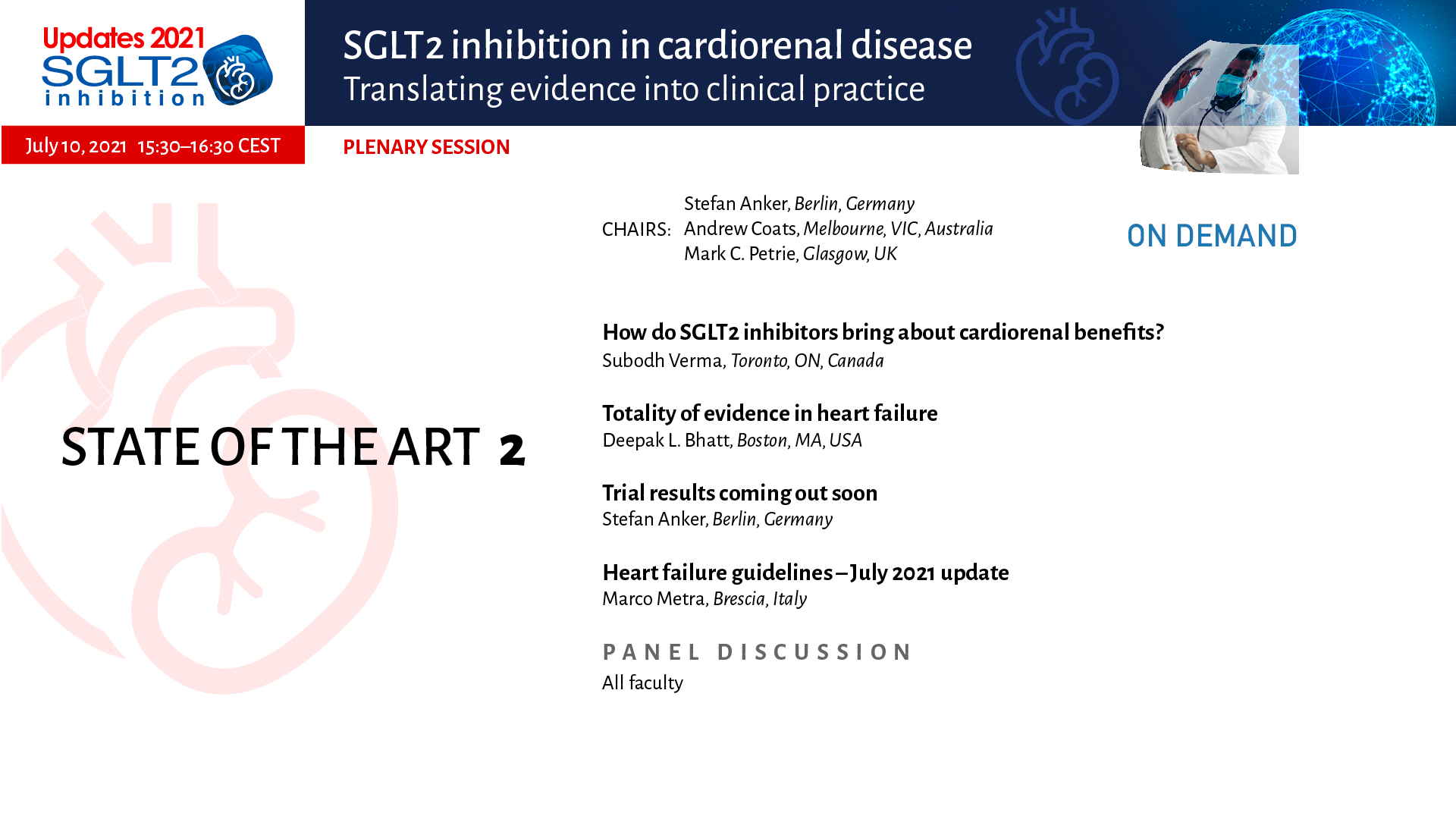 1m 20sPart 6 | Session 1 Welcome and Introduction
1m 20sPart 6 | Session 1 Welcome and Introduction -
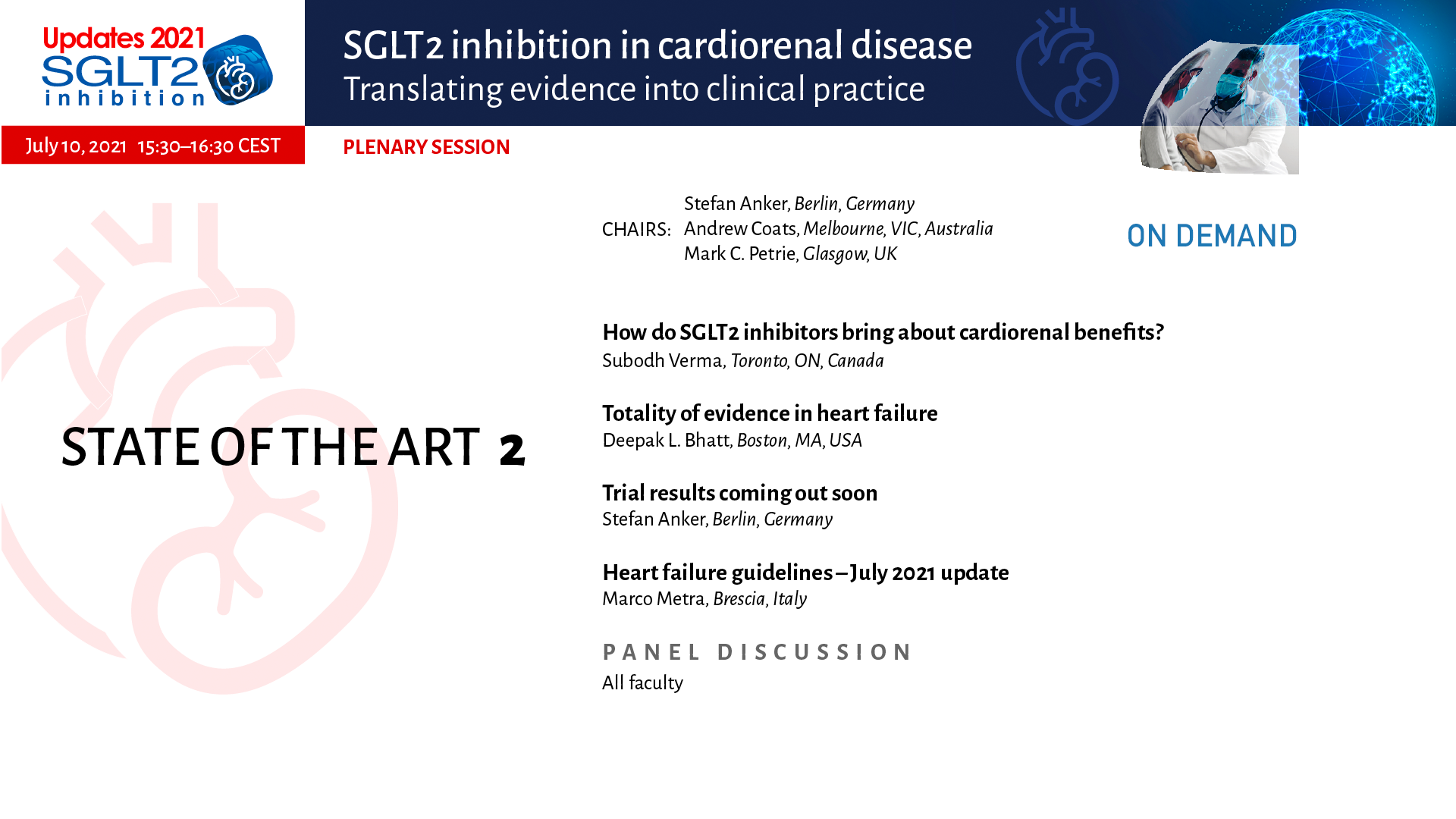 11m 2sPart 6 | Session 2 How do SGLT2 Inhibitors Bring About Cardiorenal Benefits?
11m 2sPart 6 | Session 2 How do SGLT2 Inhibitors Bring About Cardiorenal Benefits? -
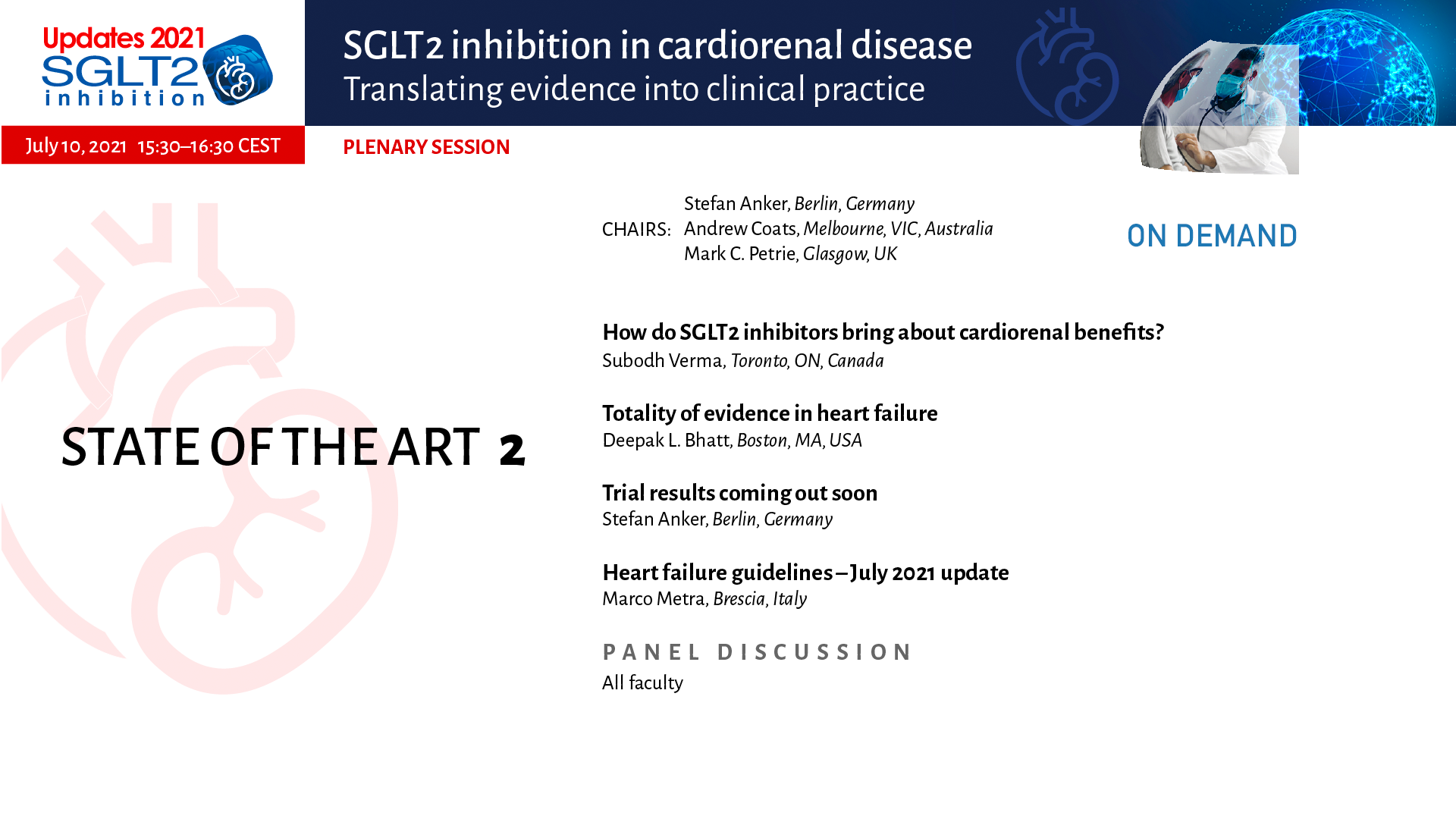 11m 24sPart 6 | Session 3 Totality of Evidence in Heart Failure
11m 24sPart 6 | Session 3 Totality of Evidence in Heart Failure -
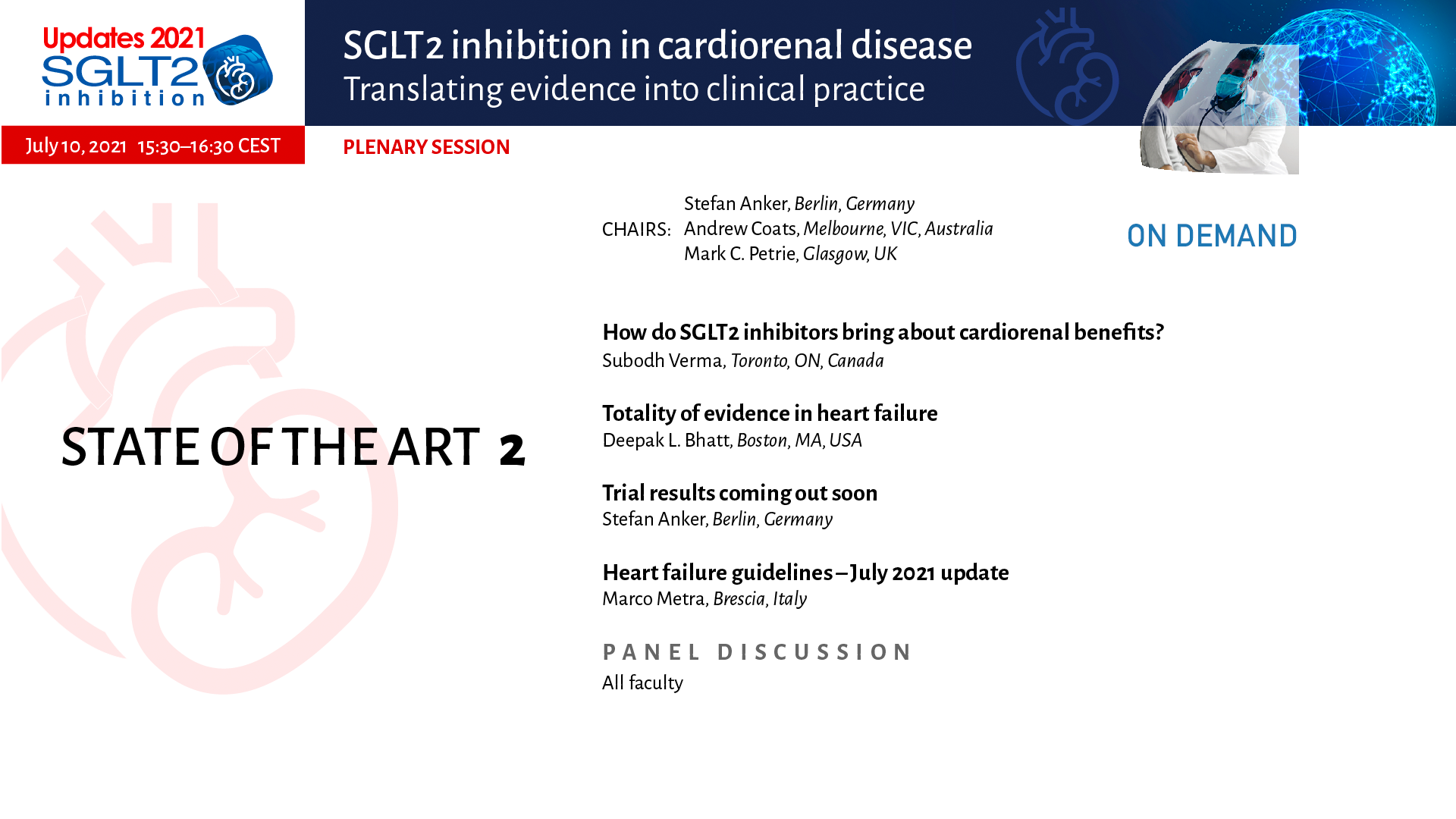 11m 20sPart 6 | Session 4 Trial Results Coming Out Soon
11m 20sPart 6 | Session 4 Trial Results Coming Out Soon -
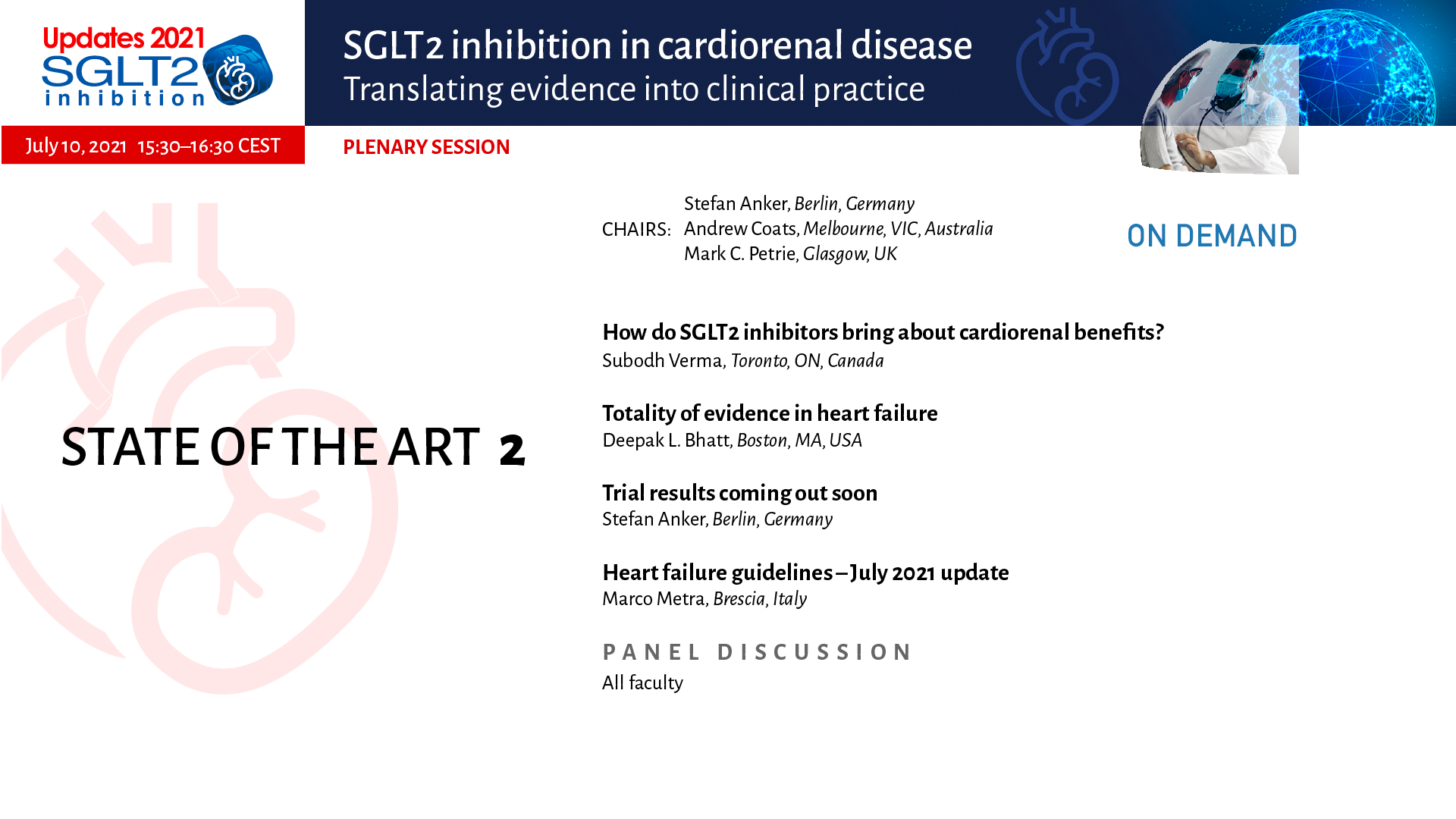 10m 55sPart 6 | Session 5 Heart Failure Guidelines
10m 55sPart 6 | Session 5 Heart Failure Guidelines -
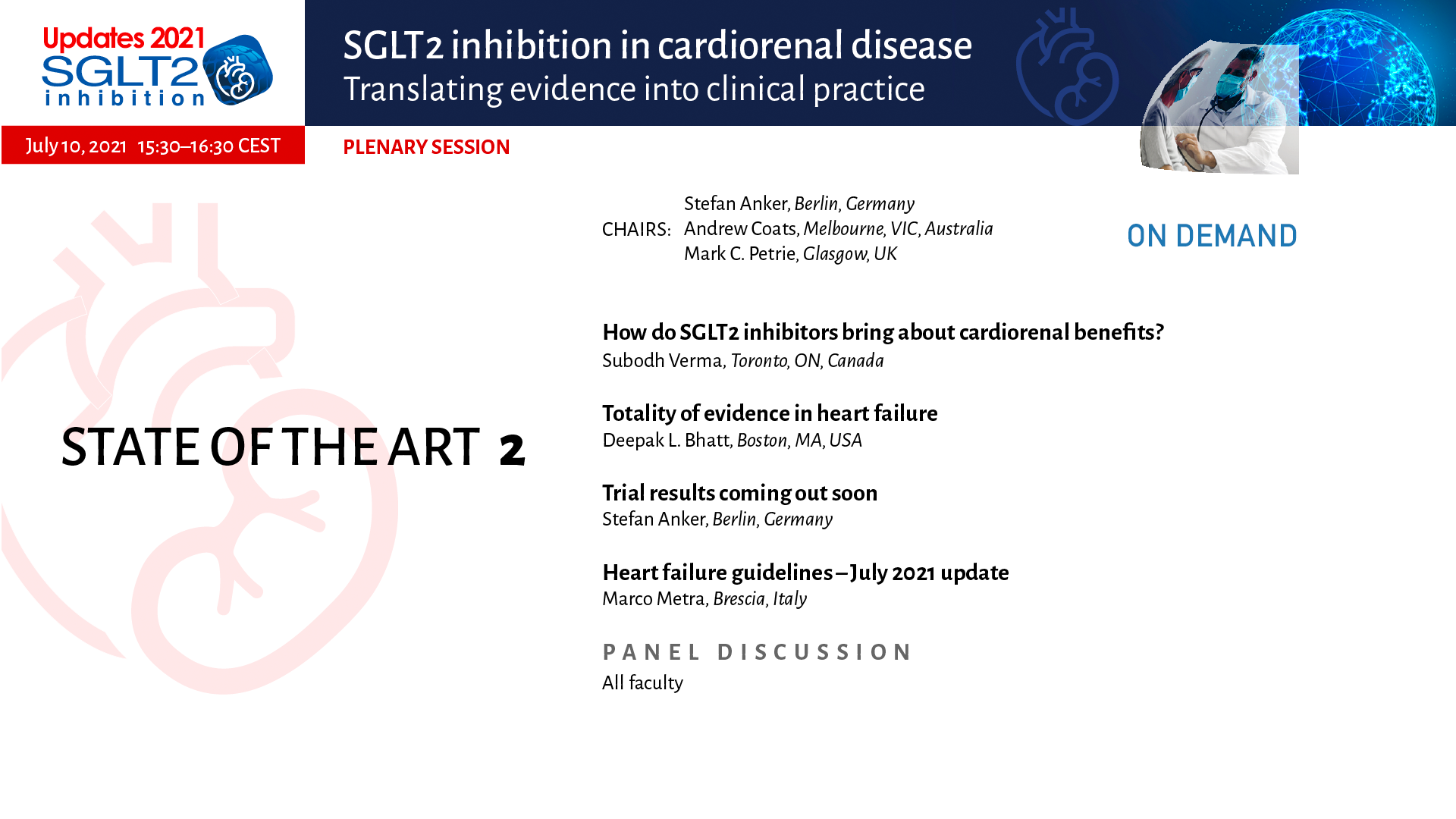 14m 37sPart 6 | Session 6 Panel Discussion
14m 37sPart 6 | Session 6 Panel Discussion
-
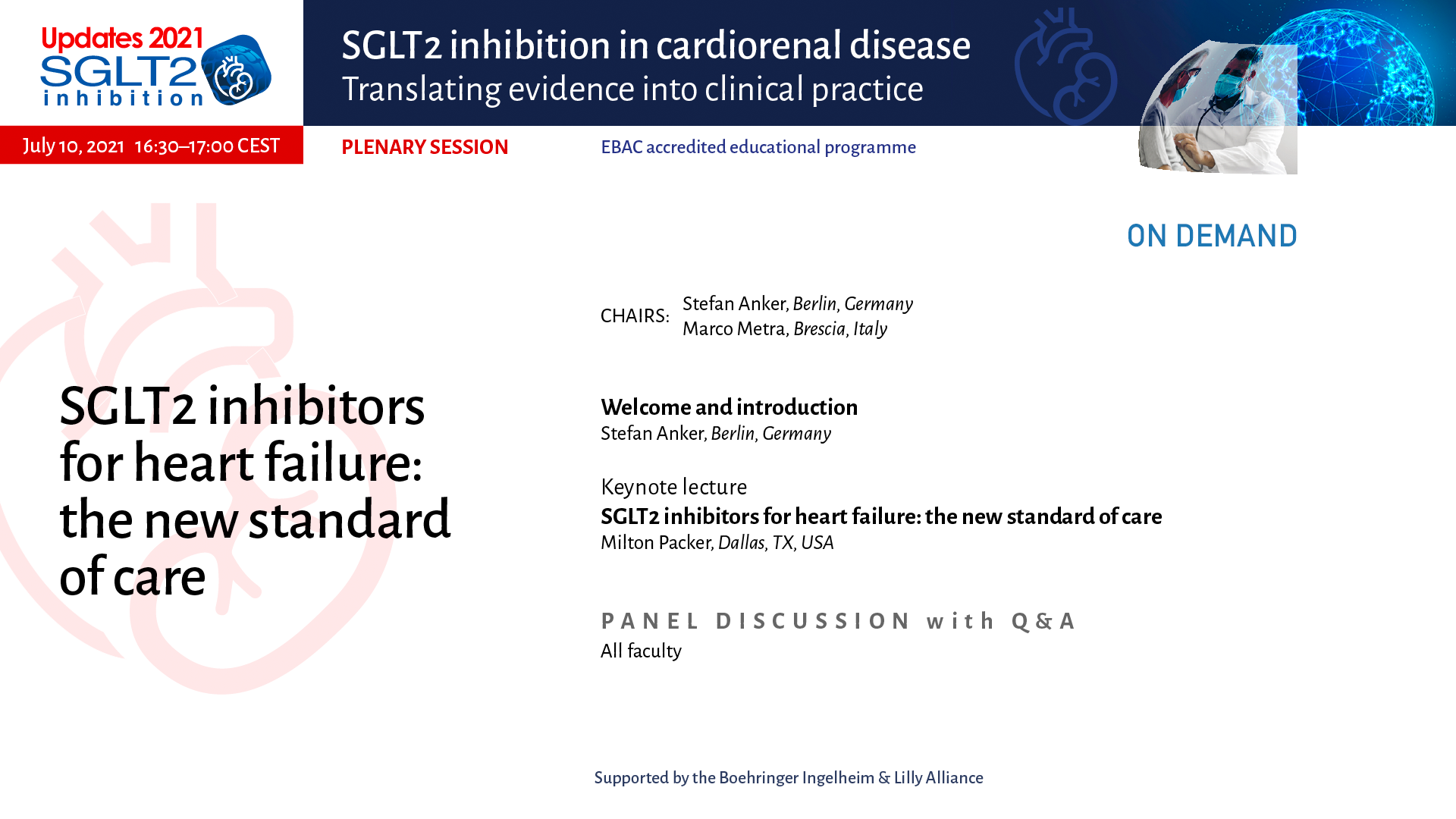 1m 1sPart 7 | Session 1 Welcome and Introduction
1m 1sPart 7 | Session 1 Welcome and Introduction -
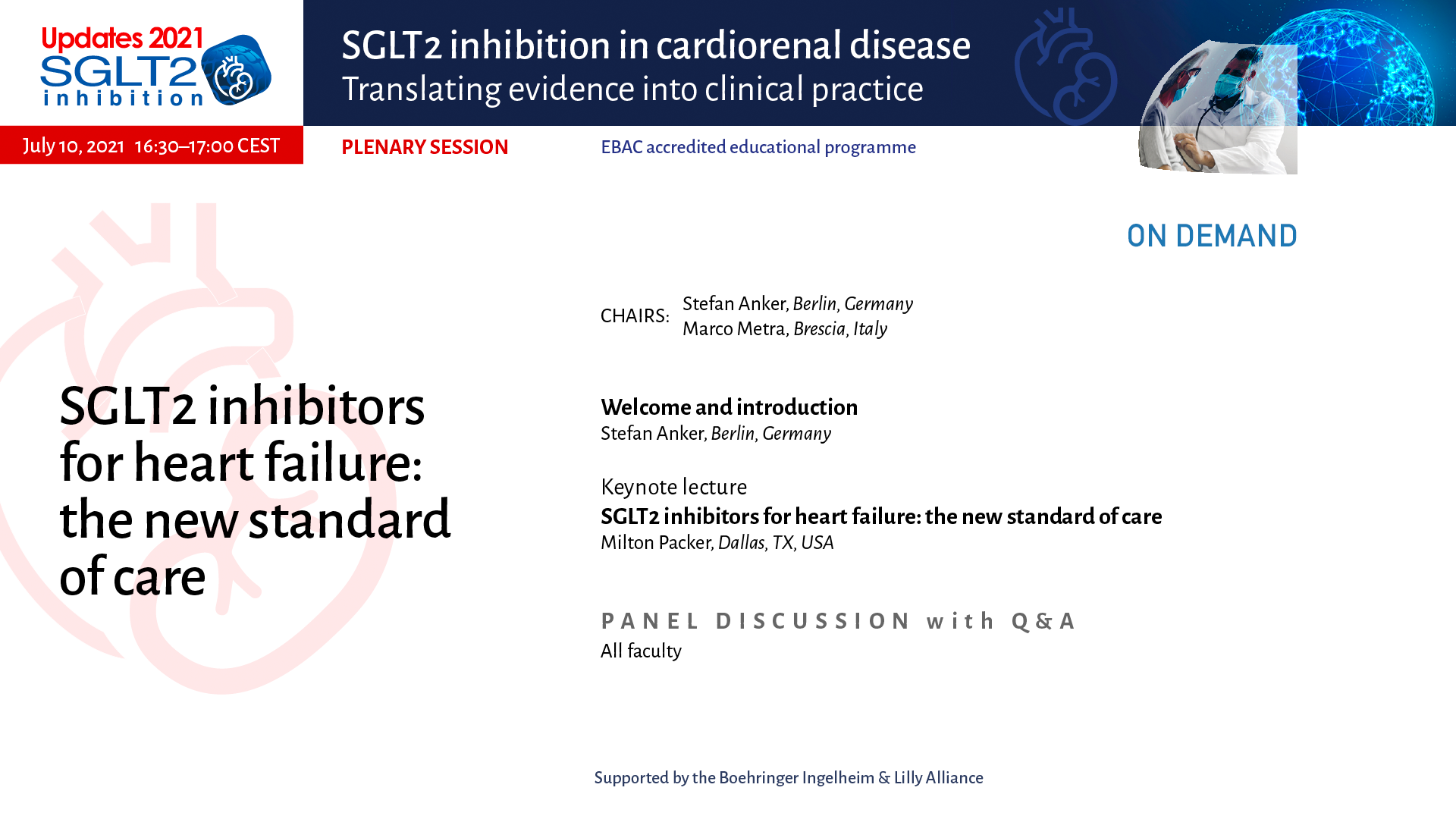 17m 18s
17m 18s -
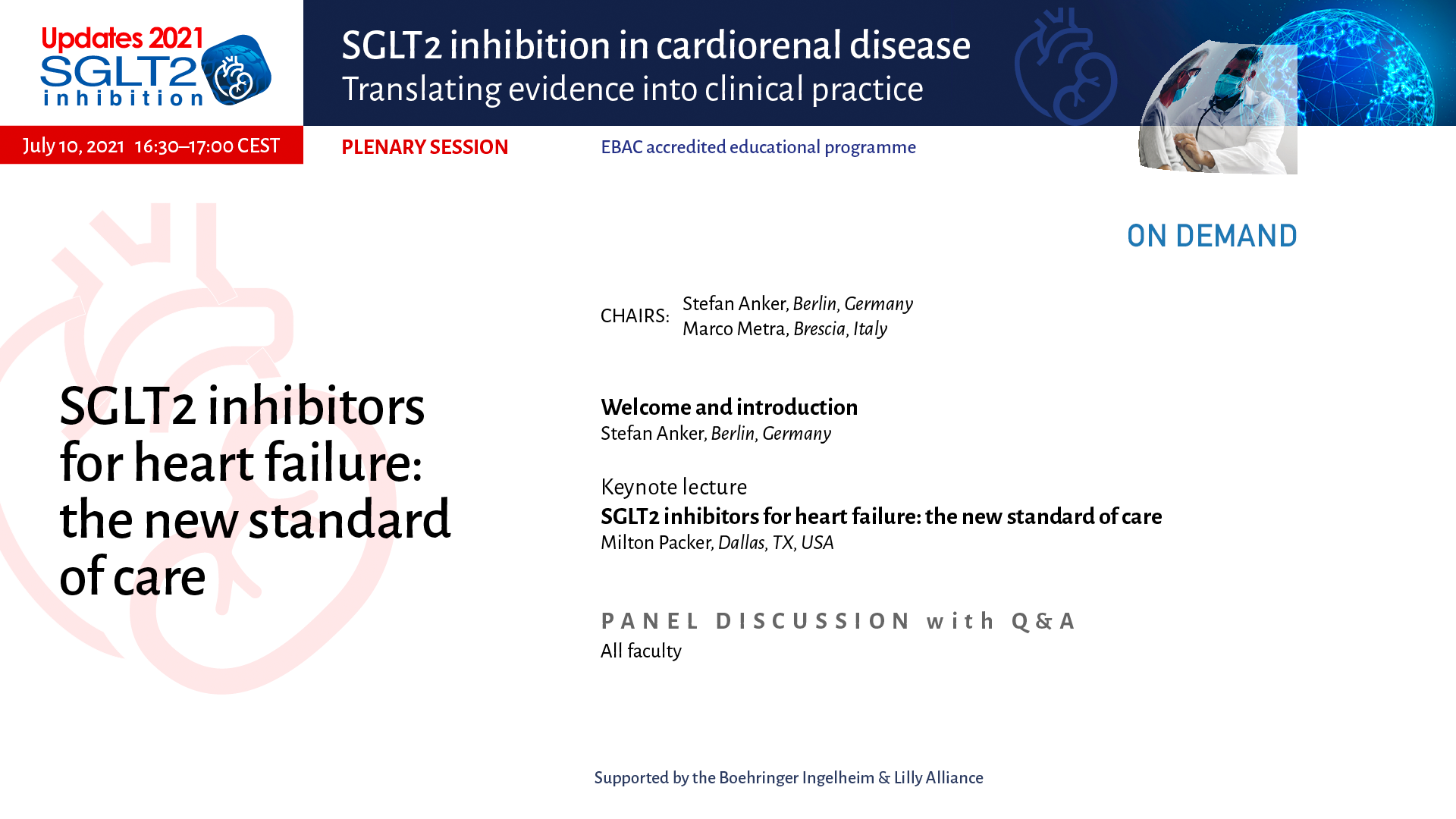 11m 29sPart 7 | Session 3 Panel Discussion
11m 29sPart 7 | Session 3 Panel Discussion
-
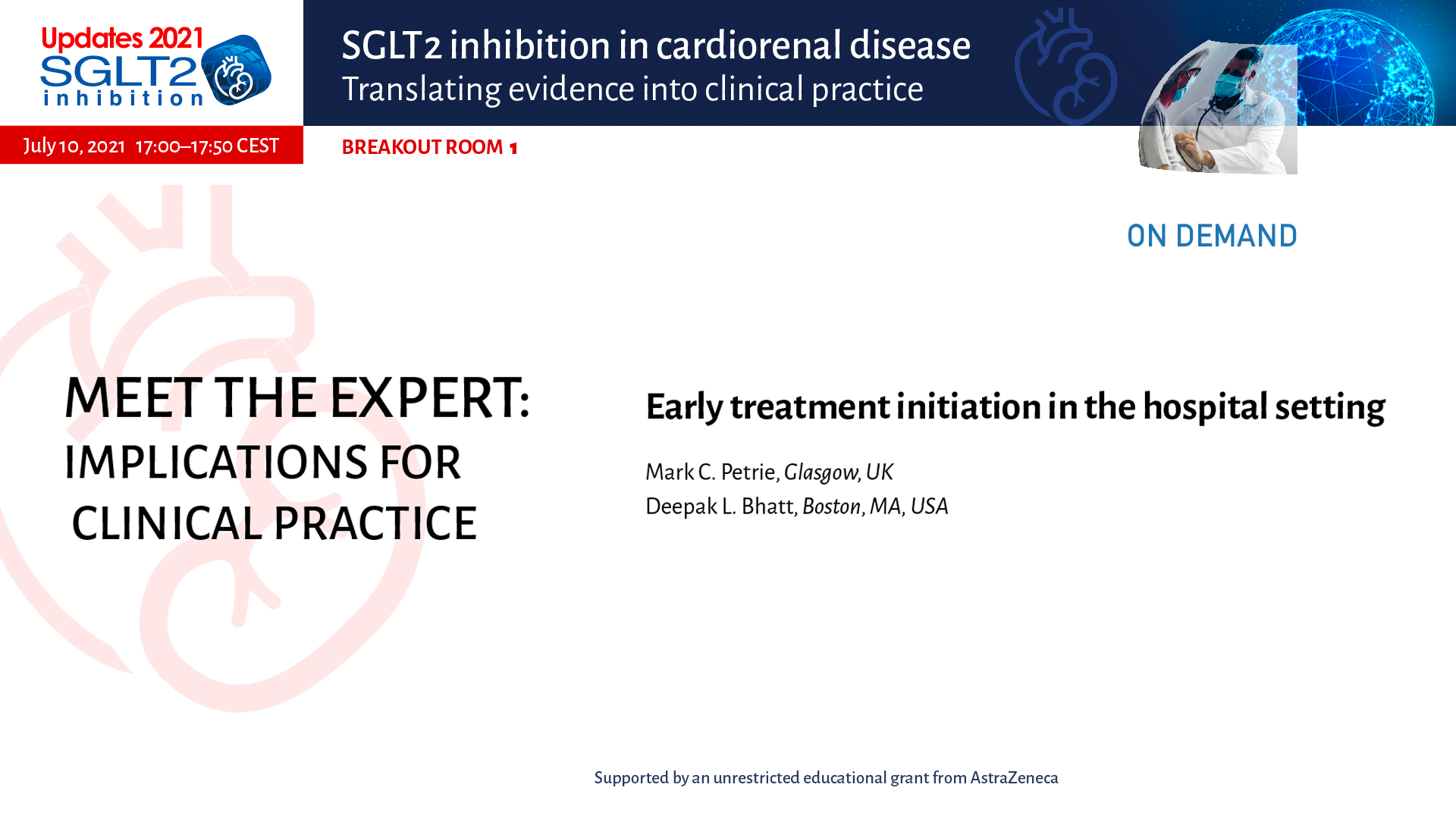 11m 8sPart 8 | Session 1 Welcome and Introduction
11m 8sPart 8 | Session 1 Welcome and Introduction -
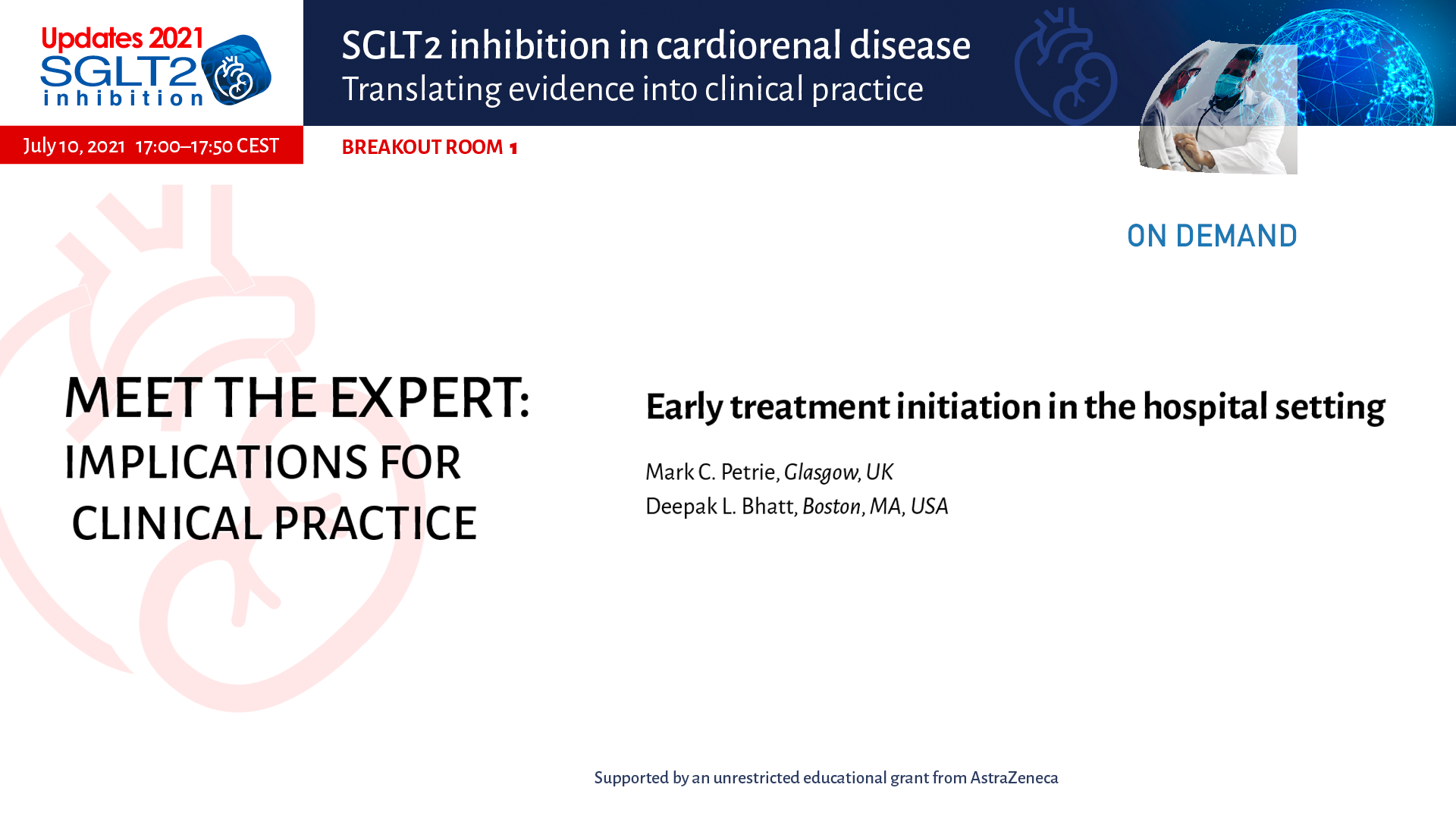 6m 43sPart 8 | Session 2 Soloist Trial Overview
6m 43sPart 8 | Session 2 Soloist Trial Overview -
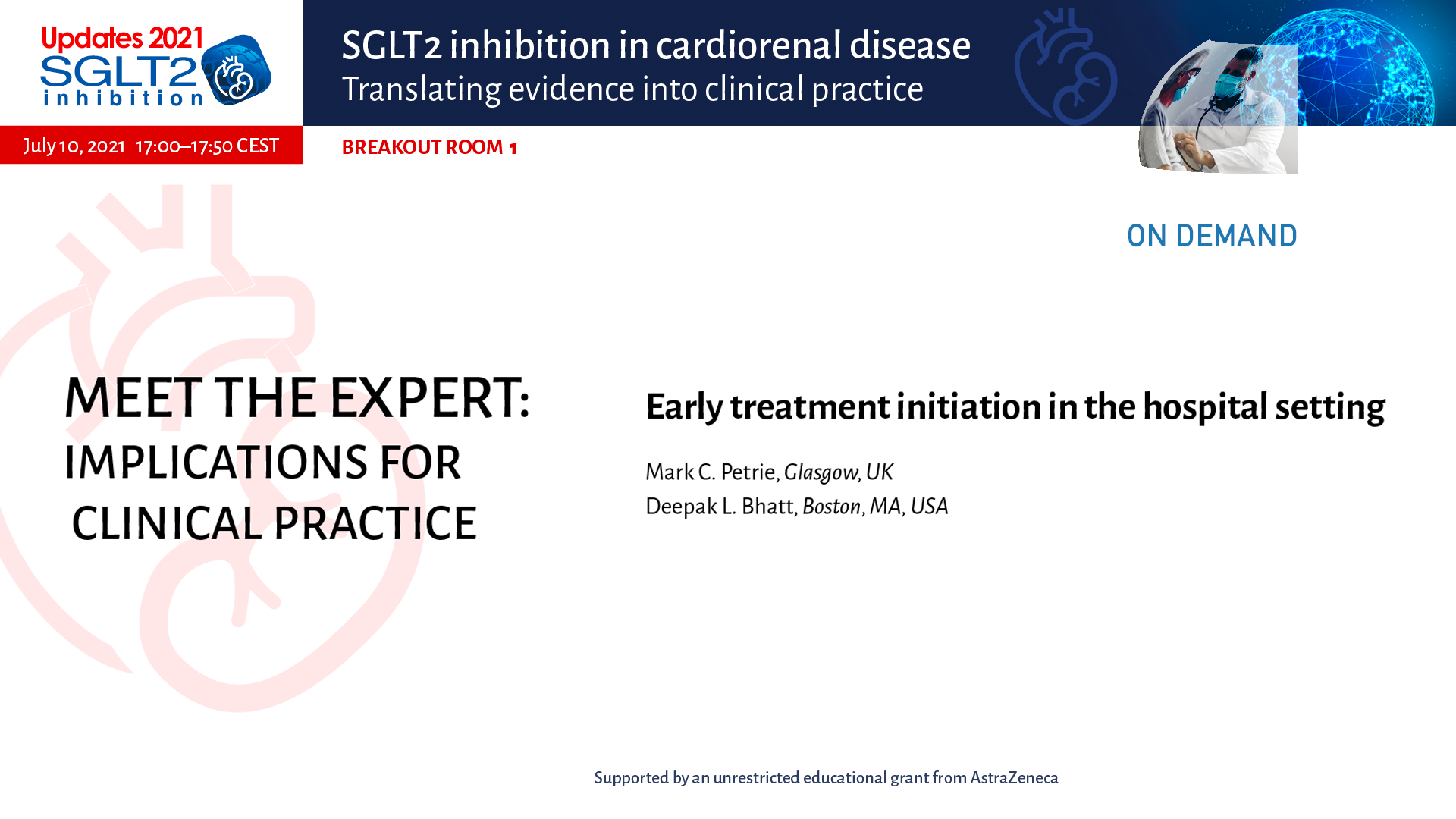 36m 32sPart 8 | Session 3 Discussion
36m 32sPart 8 | Session 3 Discussion
-
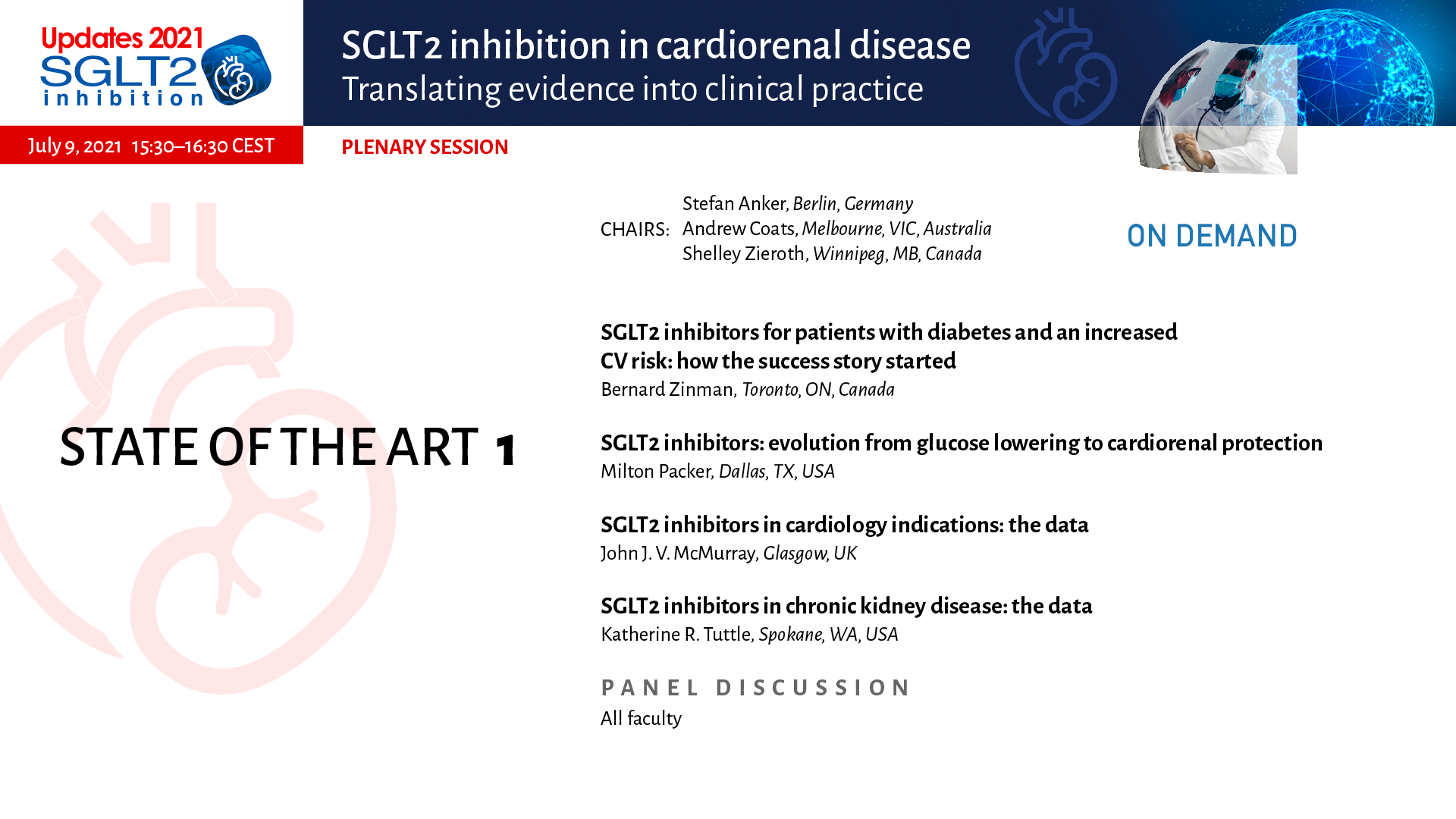 53sPart 1 | Session 1 Welcome and Introduction Stefan Anker, Shelley Zieroth
53sPart 1 | Session 1 Welcome and Introduction Stefan Anker, Shelley Zieroth
-
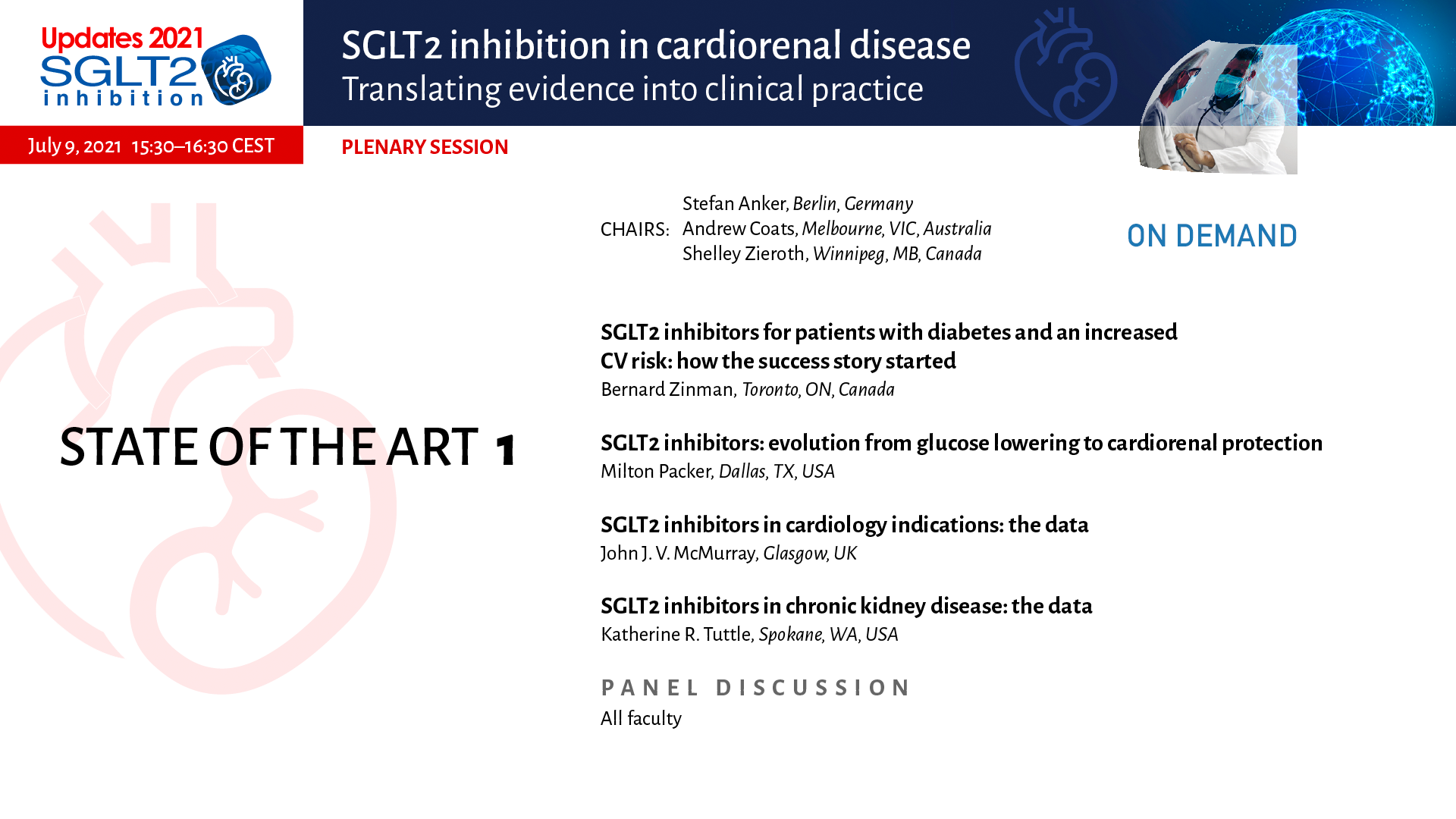 10m 23sPart 1 | Session 2 SGLT2 Inhibitors for Patients with Diabetes and an Increased CV Risk: How The Success Story Started Bernard Zinman
10m 23sPart 1 | Session 2 SGLT2 Inhibitors for Patients with Diabetes and an Increased CV Risk: How The Success Story Started Bernard Zinman
Overview
Organised with scientific co-chairs Stefan Anker and Andrew Coats, this event includes presentations and panel discussions with a host of international thought-leaders.
The SGLT2 Updates 2021 conference SGLT2 Inhibition in Cardiorenal Disease: Translating Evidence into Clinical Practice covers the place of SGLT2 inhibitors in the newly released guidelines of the Heart Failure Association (HFA) of the European Society of Cardiology (ESC) as well as their implementation in clinical practice.
In addition to plenary sessions and satellite symposia the conference featured a number of Meet The Expert breakout sessions discussing the implications in treatment of specific patient subgroups including patients with comorbidities. Audience questions were submitted throughout and were addressed by the panel experts.
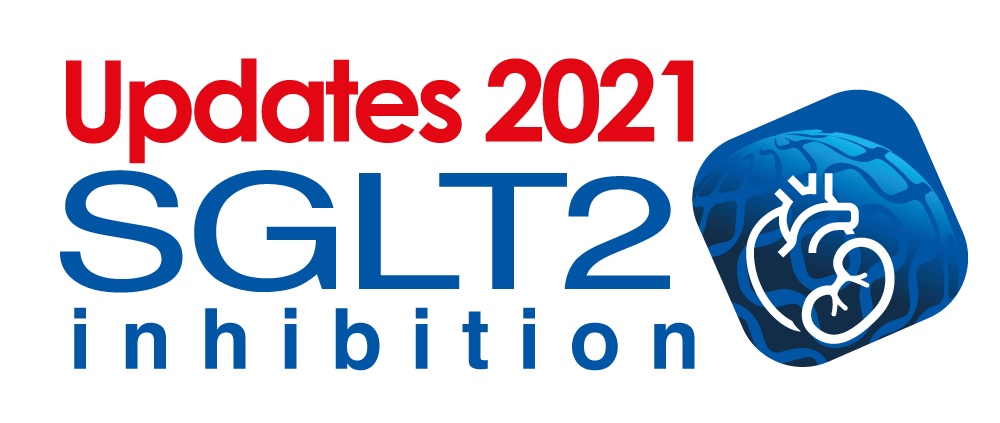
Educational Objectives
SGLT2 Inhibition in Cardiorenal Disease
- Prepare cardiologists, nephrologists and endocrinologists to effectively manage patients with heart failure, individually and collaboratively
- Apply findings from clinical trials into clinical practice
- Describe the role of SGLT2 inhibitors in different patient subgroups, including patients with comorbidities
- Evaluate the safety and cardiorenal benefits of glucose-lowering agents
- Implement the new guidelines of the HFA of the ESC in clinical practice
Target Audience
- Cardiologists
- Nephrologists
- Endocrinologists
More from this programme
Part 1
State of the Art 1
Part 2
SGLT2 Inhibitors in Heart Failure: A Practical Approach
Part 3
Meet The Expert: Implications for Clinical Practice - Breakout 1
Part 4
Meet The Expert: Implications for Clinical Practice - Breakout 2
Part 5
Meet The Expert: Implications for Clinical Practice - Breakout 3
Part 6
State of the Art 2
Part 7
SGLT2 Inhibitors for Heart Failure: The New Standard of Care
Part 8
Meet The Expert: Implications for Clinical Practice - Breakout 4
Part 9
Meet The Expert: Implications for Clinical Practice - Breakout 5
Part 10
Meet The Expert: Implications for Clinical Practice - Breakout 6
Faculty Biographies
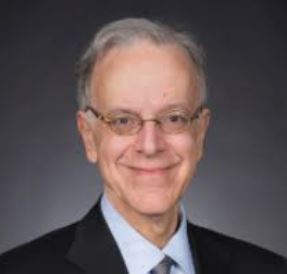
Milton Packer
Distinguished Scholar in Cardiovascular Science
Personal History
Dr Milton Packer was born to Polish immigrants in 1951 and raised in Philadelphia, US. Prior to studying medicine, he was politically active in the 1960s. In his words: “The focus of my upbringing was education, but the major guiding principle in my childhood years (and throughout my entire life) was an uncompromising sense of justice. I was always imbued with the need to strive for and defend the truth.” He began his career in cardiology during a pivotal time for the field, just as interventional cardiology and






